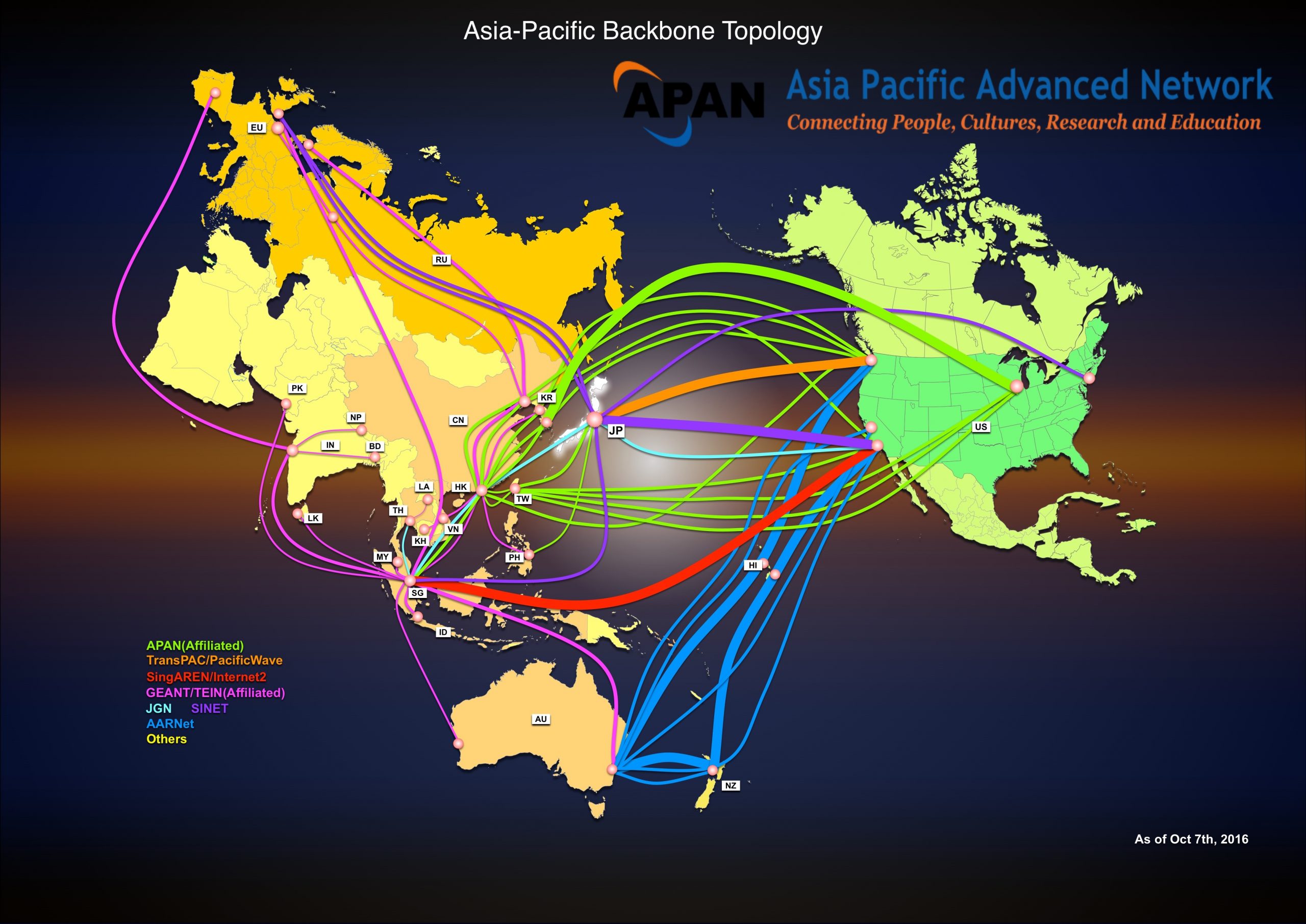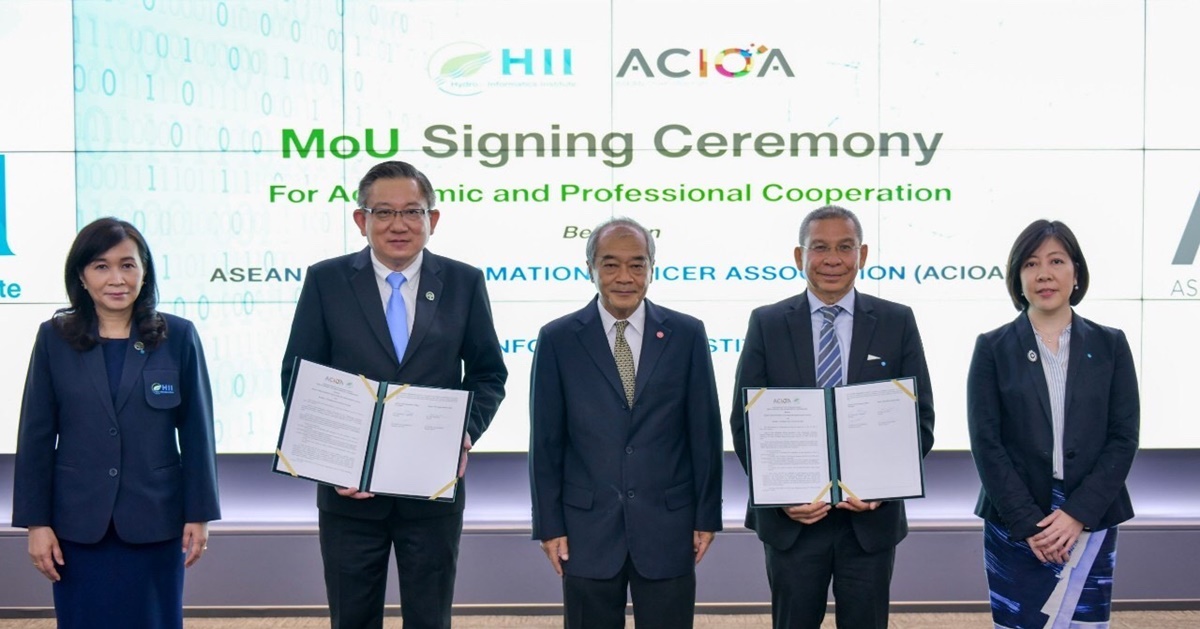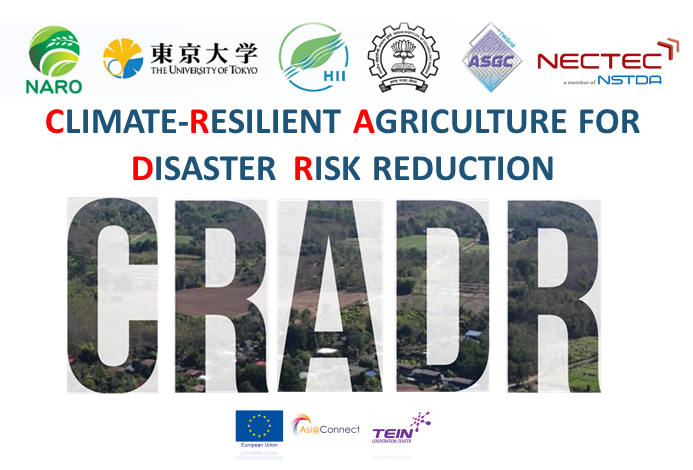
Asia – Pacific Advanced Network (APAN)
12/04/2023
The Asia-Pacific Advanced Network (APAN) is a network that connects research organizations and educational institutions worldwide to link technologies for both service delivery and application. This is the begining of HII technology or ‘Automated Telemetry Station’, which is a small-sized weather measurement telemetry system version 1, that was transferred from the National Agriculture and Food Research Organization (NARO) during the APAN meeting in 2003. Later, it was further developed by Hydro – Informatics Institute (HII) to become an automatic weather monitoring station, which is considered one of the primary technologies used today.
The APAN network holds two meetings per year, and Hydro – Informatics Institute (HII) has participated in two working groups: Disaster Mitigation Working Group (DMWG) and Agriculture Working Group (AgWG). The first meeting held in the 45th meeting to report on the progress of their work.
45th APAN Conference, during 27 – 28 March 2018, Singapore
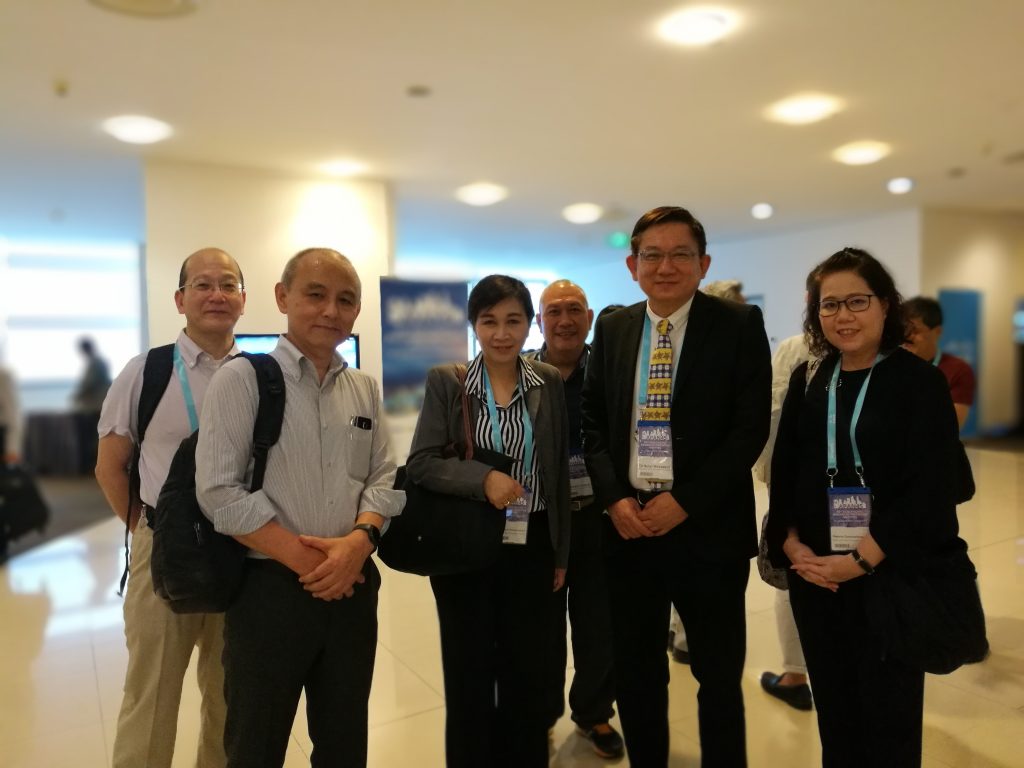
HII executives took a photo with the working group from Japan.
HII participated in the APAN Conference and presented their work on water management to reduce disaster risk related in two working groups under the APAN network as:
- Agriculture Working Group – AgWG
Dr. Sutat Weesakul, the Director of HII, has been appointed as the Chair of the Agriculture Working Group (AgWG) under APAN for a term covering meetings 46 to 49. The AgWG aims to seek funding to support participation of representatives from developing countries in their activities, and will focus on developing projects related to agriculture.
- Disaster Mitigation Working Group – DMWG
Dr. Veerachai Tanpipat, consultant to HII, has been appointed as Co-chair of the Disaster Mitigation Working Group (DMWG). The working group will focus on studying forest fires, haze, storm surges, and floods.
46th APAN Conference, during 4-10 August 2018, Auckland, New Zealand
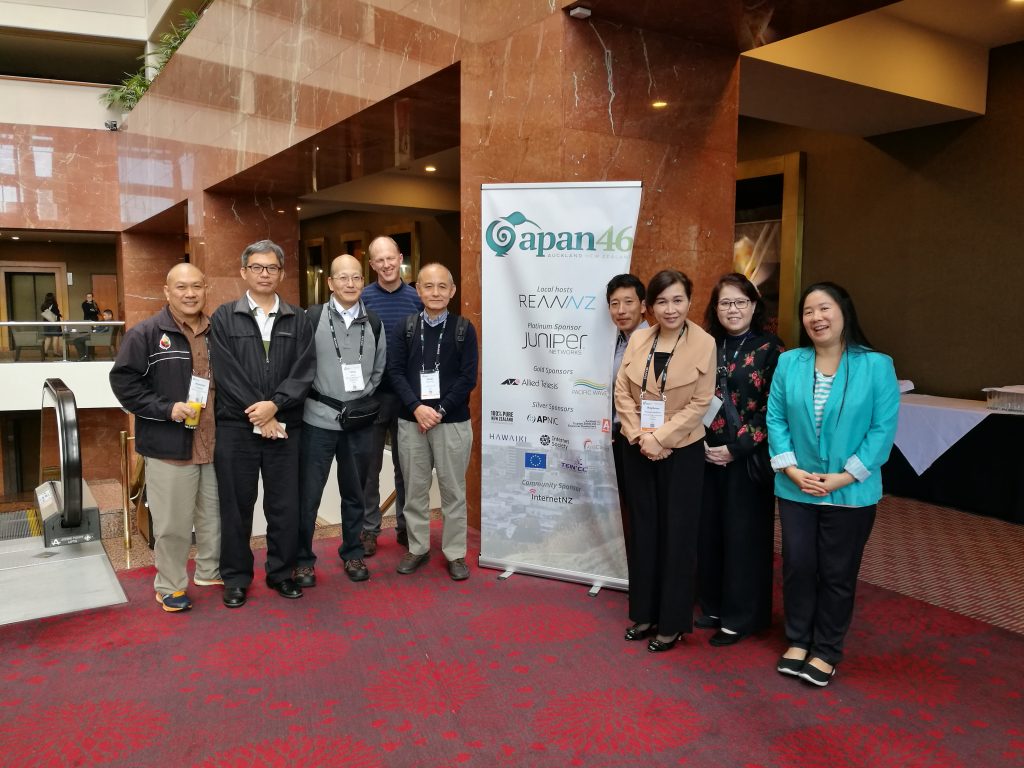
HII attended the 46th APAN Conference, which was organized into four main stages as:
1. Agriculture Working Group (AgWG) – HII participated by Dr. Royboon Rassameethes, Deputy Director of HII, and Mr. Pakarat Danusatianpong, Director of Community Water Resource Management Division, as representatives to present under the topics “Agro Data: Plant Genetic Conservation Database System” and “Agro Informatics: New Theory Agriculture Forward to Better Livelihood.”
2. Disaster Mitigation Working Group (DMWG) – Dr. Weerachai Tanthanapat, Advisor of HII, participated in the DMWG meeting as the Co-chair.
3. APAN Research Workshop 2018 – Dr. Veerachai Tanpipat, Consultant of HII, reviewed two papers of Ulrich Speidel and Lei Qian on the topic “Simulating Satellite Internet Performance on a Small Island” which was selected as the first prize by the committee.
4. Dr. Royboon Rassameethes, Deputy Director of HII, as the Chair of AgWG, presented the AgWG’s work along with Mr. Kiura Takuji, Co-Chair of AgWG, in the Closing Plenary.
At this meeting, the AgWG discussed a joint project plan between the DMWG and AgWG to involve ASEAN countries under the project named “Climate Change Resilience for Agricultural Related Disaster Risk Reduction”. The project proposal will be submitted to the Asi@Connect project for future funding support.
47th APAN Conference, 18-22 February 2019, Daejeon, South Korea
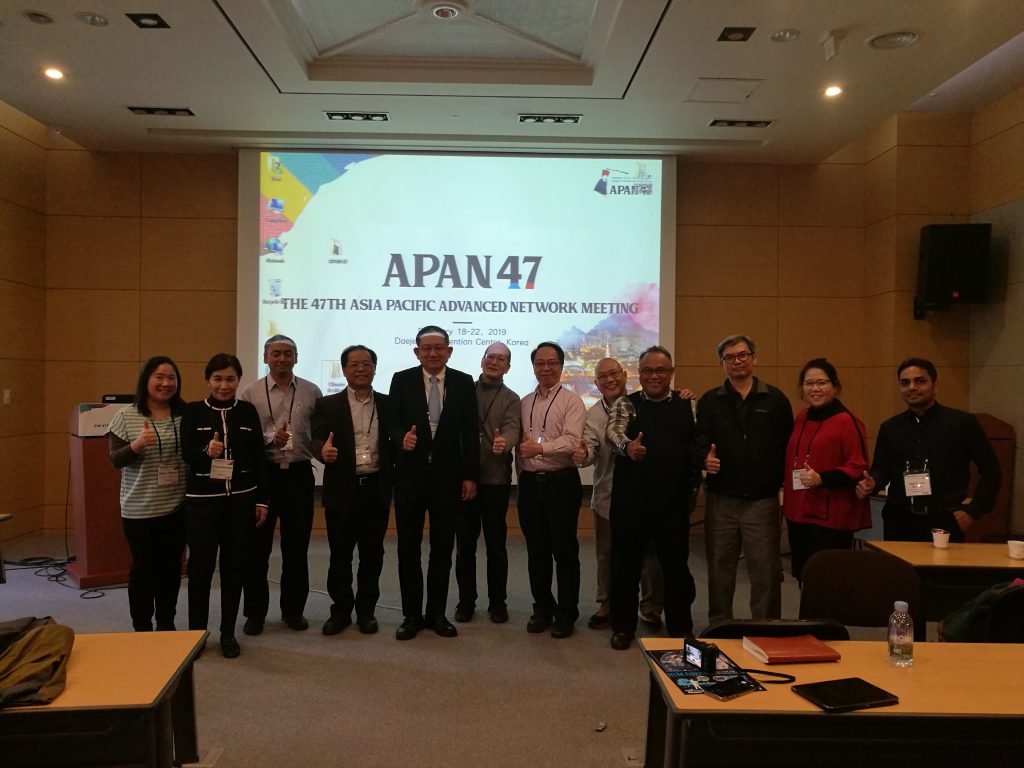
HII attended the 47th APAN Conference, which was organized into 5 main topics as:
- Dr. Noppadon Khiripet from the National Electronics and Computer Technology Center (NECTEC), Thailand, presented on “Data and Workflow Management for Agriculture Map System” at the AgWG’s Big Data and AI in Agriculture meeting. The presentation discussed Agri-Map Online, a tool for displaying geospatial information and recommending crop substitution activities in an online map format, and its potential integration with the work of the Department of Agriculture.
- Coordination of the E-Life meeting between the AgWG, Medical, and e-Culture Working Groups which emphasized the concept of enjoying life while discussing ways to improve it.
- HII participated in and provided comments at the DMWG meeting, which discussed future plans.
- HII organized the Climate Resilience Agriculture for Disaster Risk Reduction (CRADR) meeting, in which the DMWG and AgWG reported on current progress and agreed to collaborate on expanding the use of Himawari satellite data from the National Institute of Information and Communications Technology (NICT) in Japan to conduct research in Thailand and other ASEAN countries through the APAN network.
- HII chaired sessions on Big Data and AI in Agriculture, Climate Resilient Agriculture for Disaster Risk, and e-Life during the meetings and presentations.
48th APAN Conference, 22-26 July 2019, Putrajaya Malaysia
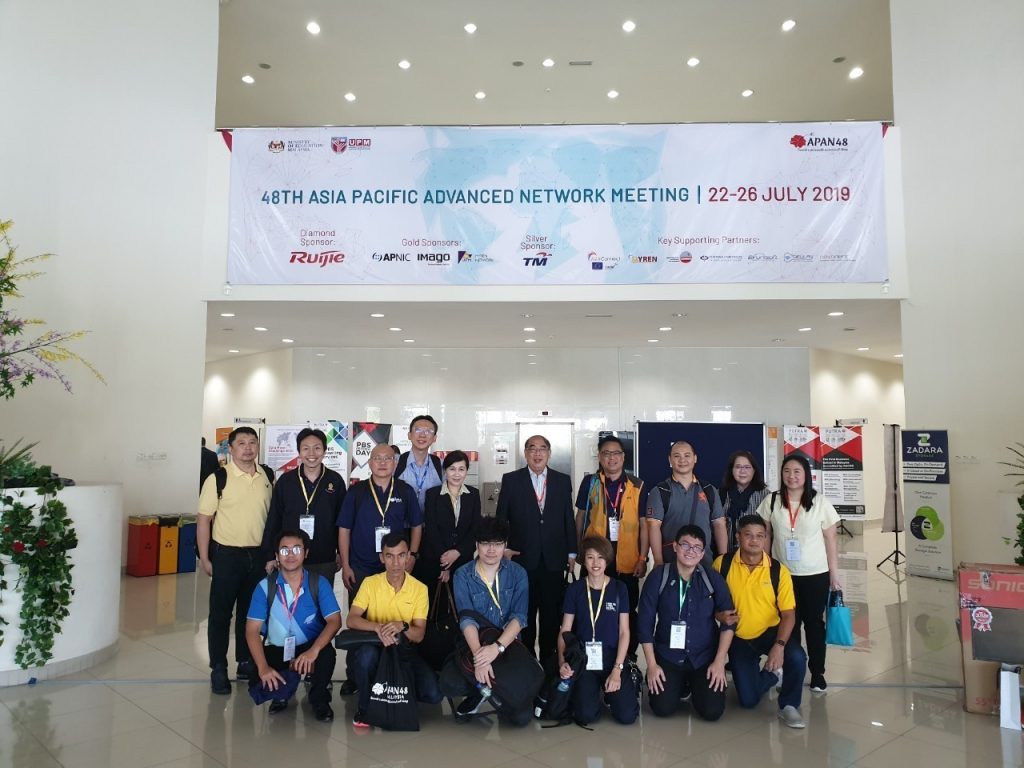
HII attended the 48th APAN Conference, which was organized into main topics as:
- At the conference, HII created a poster to showcase and raise awareness of the ASEAN Hydroinformatics Data Center (AHC), which was displayed on the integrated board.
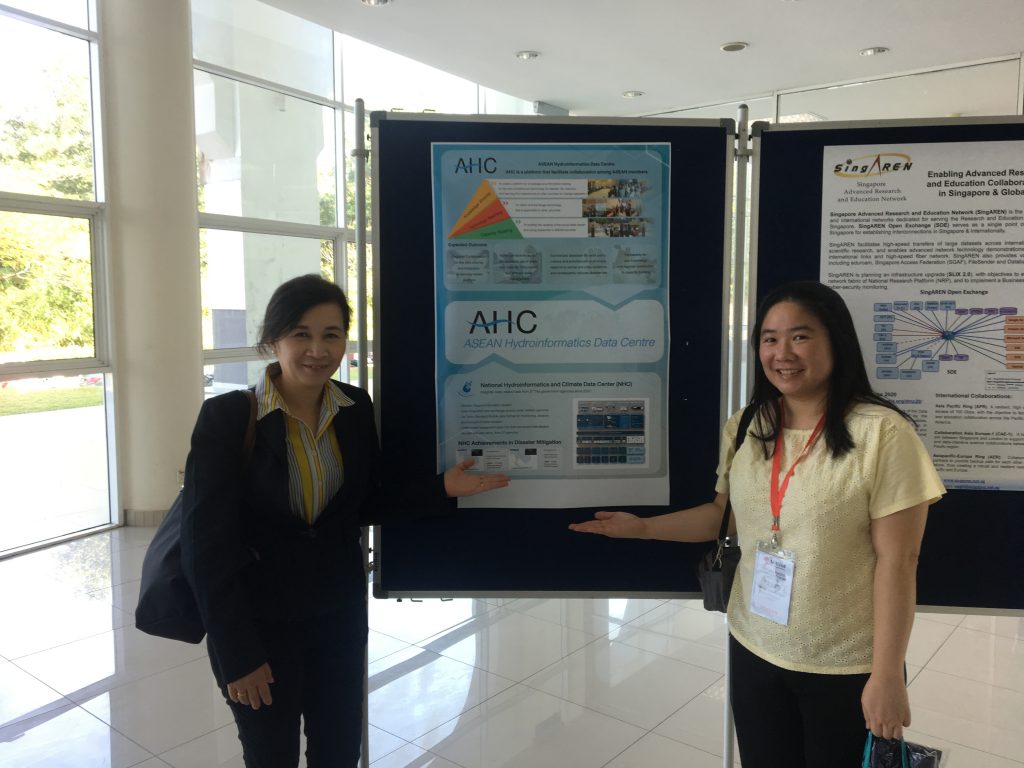
2. HII participated and provided feedback in the DMWG meeting, where the progress report of the Asi@connect project and future plans were presented.
3. HII organized a meeting for the Climate Resilience Agriculture for Disaster Risk Reduction (CRADR) project, where discussions between the DMWG and AgWG were held to report on current progress and collaborations in the Asi@Connect project and future plans.
4. HII attended and chaired a session on Big Data and AI in Agriculture, Climate Resilient Agriculture for Disaster Risk Reduction, where they presented their findings.
49th APAN Conference (Virtual meeting), 1 – 6 March 2020, hosted by NREN Kathmandu, Nepal.
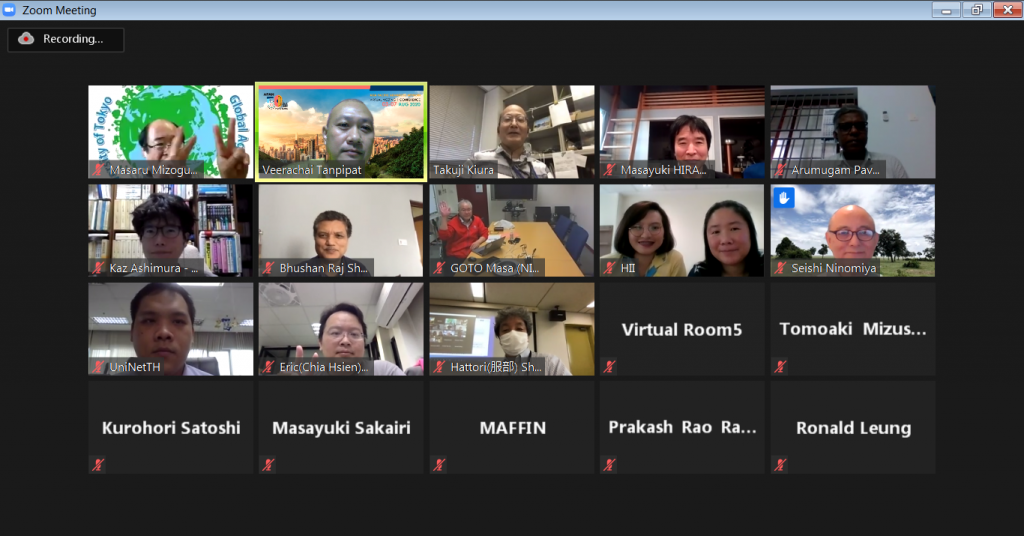
Due to the COVID-19 situation, HII was unable to attend the trip to Nepal and instead participated in the meeting through a VDO conference. The main topics of the meeting were:
- Due to the COVID-19 outbreak, HII therefore participated through video conference. The main topic of the meeting was the progress of the Climate-Resilient Agriculture for Disaster Risk Reduction (CRADR) project, which received funding under the Asi@Connect project. The project aims to study the impact of climate change on small-scale agriculture and use new technologies to solve problems, as well as share and expand the results with AHC members.
- The Agriculture Working Group provided an update on their current progress, including the election of a new chairman. Dr. Sutat Weesakul, the Director of HII, was chosen as the chairperson for another term.
- There was a discussion on the sharing of information about big data and AI technologies in the agriculture industry, specifically in the context of the Big Data and AI in Agriculture session.
50th APAN Conference (Virtual meeting), 3-7 August 2020, hosted by NREN Hong Kong.
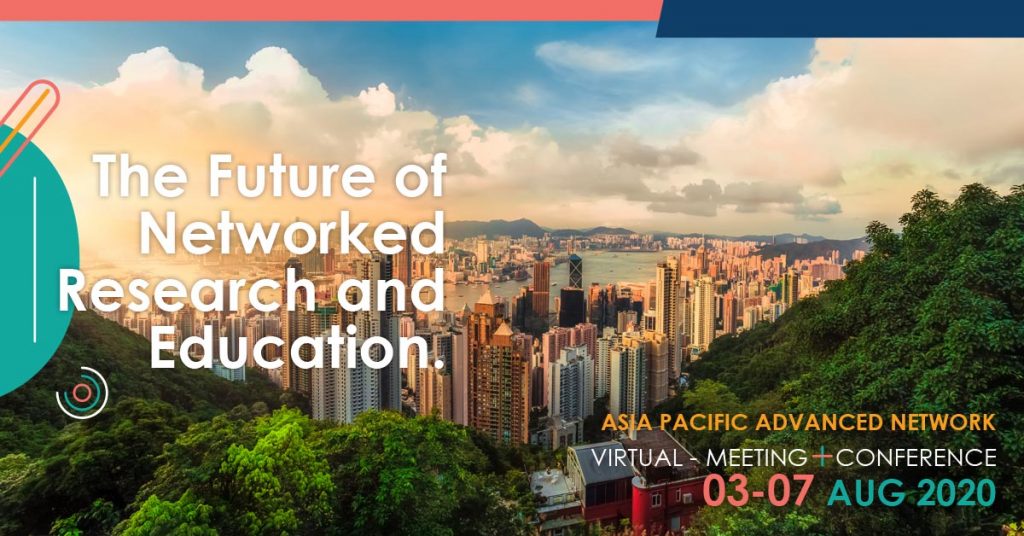
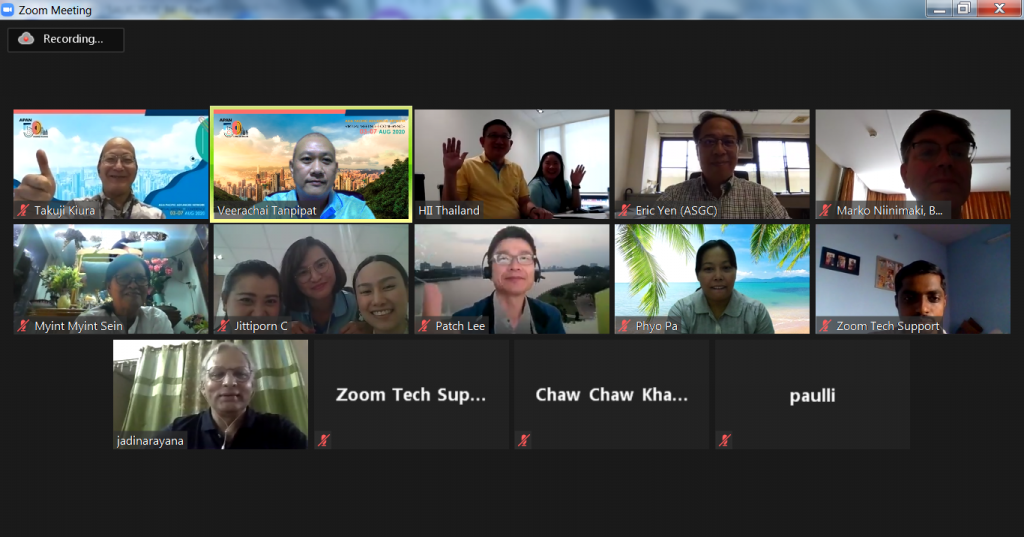
Due to the COVID-19 outbreak, the Asia Pacific Advanced Network Conference had to be held via video conference by Hong Kong as the host from August 3-7, 2020. HII participated in the meeting and discussed various topics including:
1. Rural Hybridization, presented by Mr. Takuji Kiura from the National Agriculture and Food Research Organization (NARO), is a showcase of various technologies used to develop Smart Agriculture in rural areas of Japan. These technologies include high-resolution camera-based plant growth data collection, Solar Cubicle energy technology, and water gate control through an iPad application. The presentation also touched on the World Wide Web Consortium (W3C) and its relevance to agriculture technology.
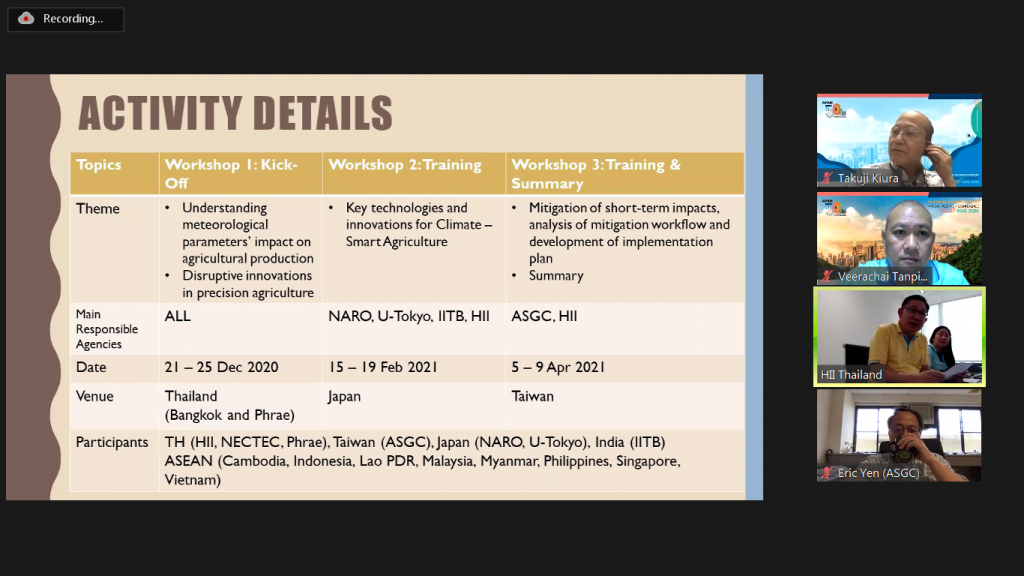
2. The Climate Resilient Agriculture for Disaster Risk Reduction (CRADR) project, led by Dr. Sutat Weesakul, Director of HII, has made progress in negotiating a contract with TEIN*CC and adjusting activity plans to fit the COVID-19 situation by the below activities:
- 1st Workshop: Kick-off Meeting, during 21-25 December 2012, in Phrae Province, Thailand.
- 2nd Workshop: Training (Agriculture), during 15-19 February 2021, at the University of Tokyo. Japan
- 3rd Workshop: Training (Disaster) and Summary, 5-9 April 2021 in Taipei, Taiwan
In addition, Dr. Sutat Weesakul, Director of HII, has presented the community of Ban Lao Nue as the first location for project implementation. Detailed technical information of the case study area was discussed to prepare for the next phase of the project. The working group has scheduled another meeting in October 2023 while HII will collect necessary data to facilitate further collaboration.
3. Disaster Mitigation Working Group, led by Dr. Eric Yen from Taiwan, presented the main objectives and mission of the group regarding disaster management, technology, and examples of disasters in each country for study. The presentation also included a group of Japanese volunteers who have come together to help people affected by disasters, coordinating various forms of assistance. Dr. Veerachai Tanpipat, consultant of HII, presented data on the amount of carbon dioxide emitted from forest fires in ASEAN countries, including Thailand, Laos, Myanmar, and Cambodia, from 2003-2020. The statistics showed that the period from late winter to early summer (January-April) is the time when forest fires occur most frequently, with the main cause being human-induced forest burning.
51st APAN Conference (Virtual meeting), 1-5 February 2021, hosted by NREN Pakistan.

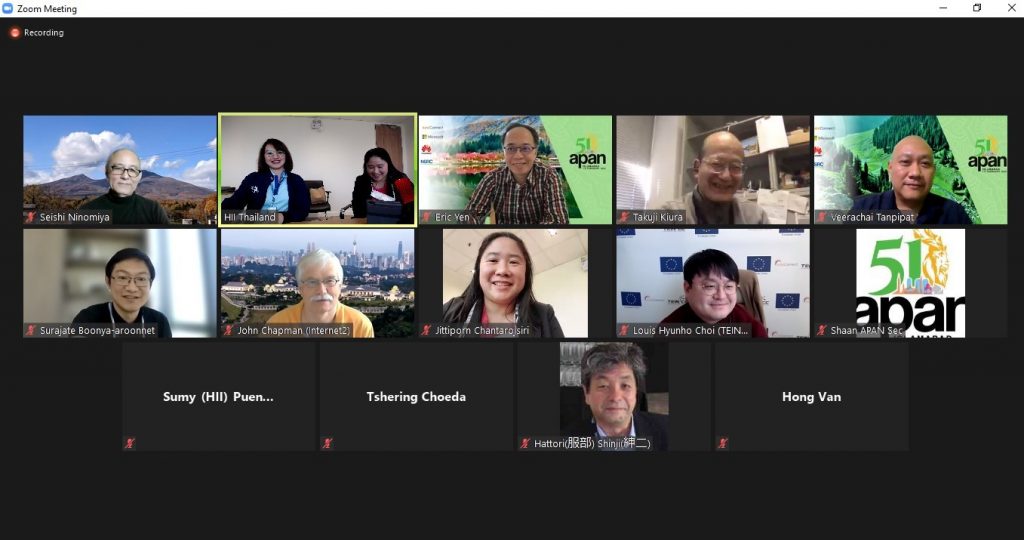
Due to the COVID-19 situation, the 51st Asia Pacific Advanced Network Conference had to be conducted through virtual meeting hosted by Pakistan from February 1-5, 2022. HII was a part of the Agriculture Working Group (AgWG) and Disaster Mitigation Working Group (DMWG), which presented as following topics:
- Disaster Mitigation Working Group, led by Dr. Eric Yen from Taiwan, presented the group’s mission, main objectives, activities, and status of cooperation. Additionally, they discussed various case studies of disasters. Three topics were presented during the APAN meeting, including:
– Fire/Smoke/Haze/Maze monitoring in Upper ASEAN by Dr. Weerachai Tanpipat provides insights on the statistics of forest fires in the ASEAN region from 2003 to 2020. This could be useful in identifying trends and patterns in the occurrence of forest fires, and in developing strategies to prevent and mitigate their impact on the environment and human health.
– Fire Emissions in Upper ASEAN by Ms. Pragati Kharel, Malaysia presented on the website for accessing information on forest fires and PM 2.5 pollution in Northern ASEAN countries (Myanmar, Thailand, Cambodia, Vietnam and Laos) is relevant in terms of raising awareness among the public and stakeholders on the hazards associated with forest fires and air pollution. This can help in promoting measures to reduce emissions and prevent forest fires in the region. (http://wildlandfire.thairen.net.th/home.html)
– Flood in southern Thailand by Asst. Prof. Dr. Somporn Chuai-Aree, Department of Mathematics and Statistics, Faculty of Science, Prince of Songkla University, presented on the use of Virtual Cloud3D Software to analyze flood events in Southern Thailand is an innovative approach to predicting and managing natural disasters. This tool can help in assessing the impact of floods on the environment and infrastructure, and in planning and implementing effective flood management strategies.
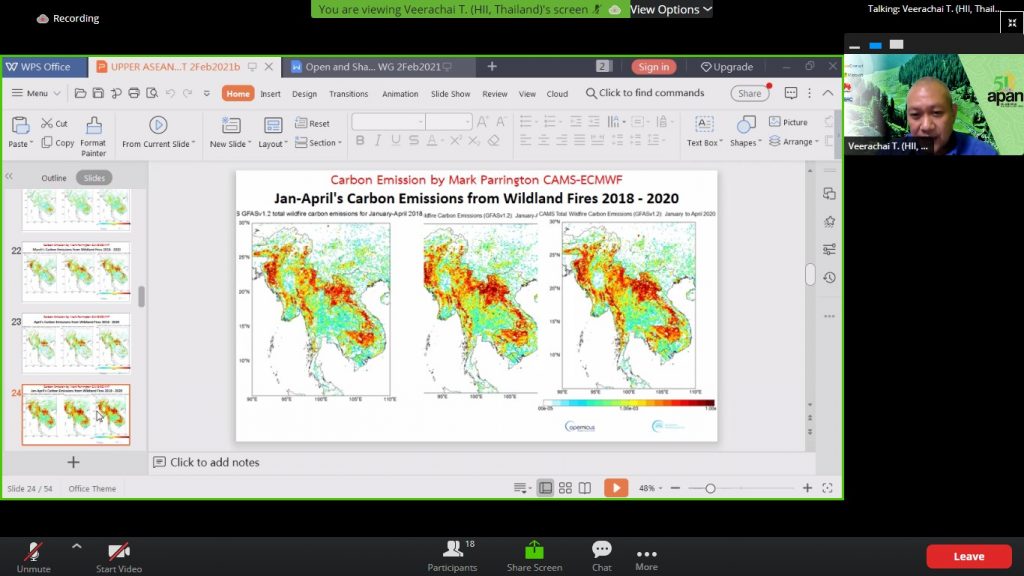
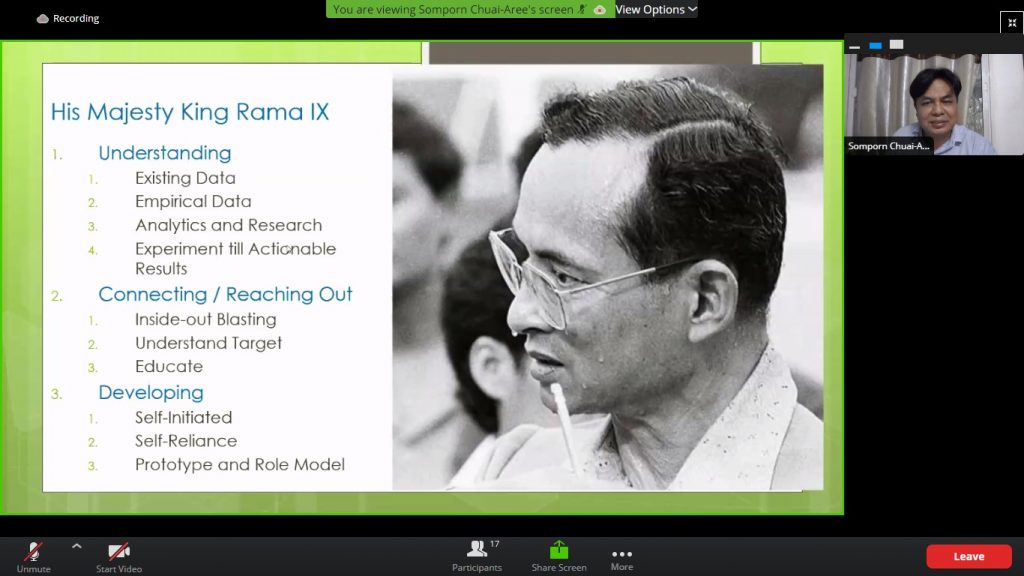
2. Open Data and Sharing Working Group led by Mr. Takuji Kiura from the National Agriculture and Food Research Organization (NARO) and Dr. Veerachai Tanpipat from Hydro – Informatics Institute (HII), discussed ways to address issues related to data sharing and exchange among researchers, with a focus on climate change data. They discussed potential solutions to overcome barriers to data sharing and exchange, and emphasized the importance of open data and sharing to facilitate research collaborations and advance scientific understanding of climate change in the region as following issues:
- Obstacles faced by each country in terms of policies, data regulations within organizations or institutions, and at the national level.
- Sharing platform for storage practices and data maintenance in each country.
- Cooperation with national and international academic societies.
3. Rural Hybridization led by Mr. Takuji Kiura from the National Agriculture and Food Research Organization (NARO) presented on Rural Hybridization, which showcases various technologies for the development of Smart Agriculture in rural areas of Japan. In the upcoming 51st APAN, the focus will be on inviting speakers to share their insights on current issues such as technology that supports online learning in rural areas, water management practices in different provinces of Thailand, or the problem of wild elephants invading agricultural areas in rural communities. Discussions will include technologies that can alert farmers in advance about the movements of elephants and other wildlife.
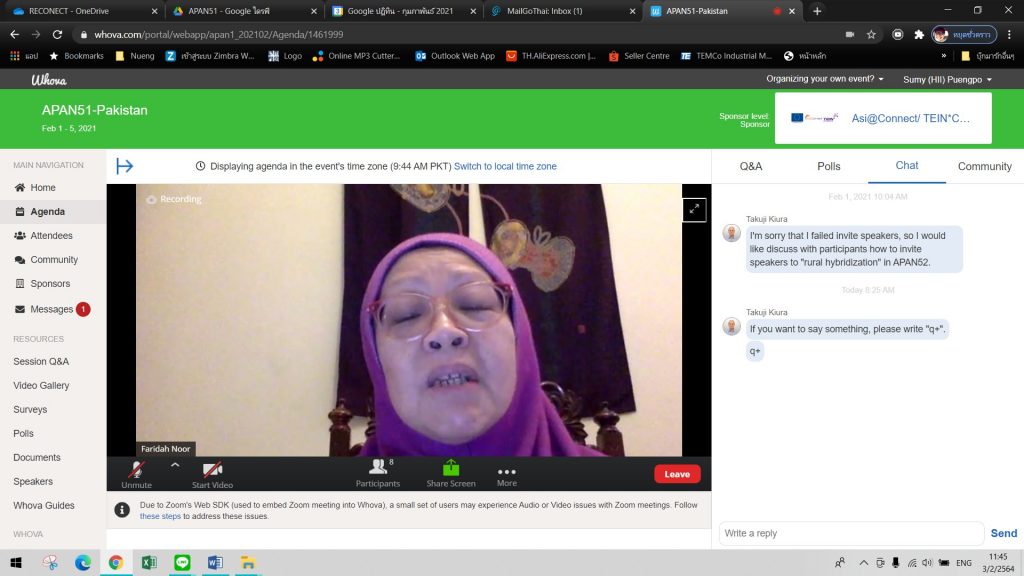
4. The Climate Resilient Agriculture for Disaster Risk Reduction (CRADR) project, led by the collaboration of Agriculture Working Group or AgWg from various countries (Japan, Taiwan, India and Thailand), which has been updated on its progress and status by Hydro – Informatics Institute (HII). Recently, HII signed an agreement with TEIN*CC to carry out the project for a total of 6 months (December 2020 – May 2021). The project’s main activities include three workshops as:
Workshop 1, led by HII, took place on February 22-24, 2021. Its aim was to provide ASEAN countries with knowledge of HII technology for analyzing climate data in Phrae province and the northern of Thailand.
Workshop 2, led by NARO from Japan, took place in March 2021. Its goal was to teach participants about Smart Farm technology, which helps make agriculture more resilient to changing weather conditions.
Workshop 3, led by Taiwan, took place in May 2021. Its focus was on learning technology used to analyze climate data using high-performance computers.
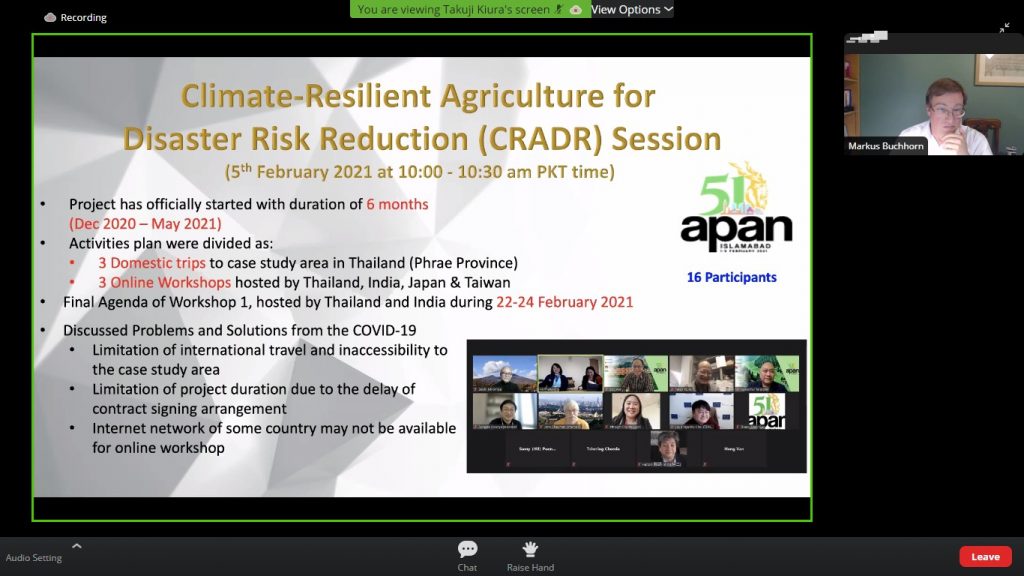
Regarding the progress of the organization of the 52nd Asia Pacific Advanced Network Meetings, it is scheduled to take place in August 2564, hosted by NREN in Yogyakarta, Indonesia. They will update on any changes that may occur.
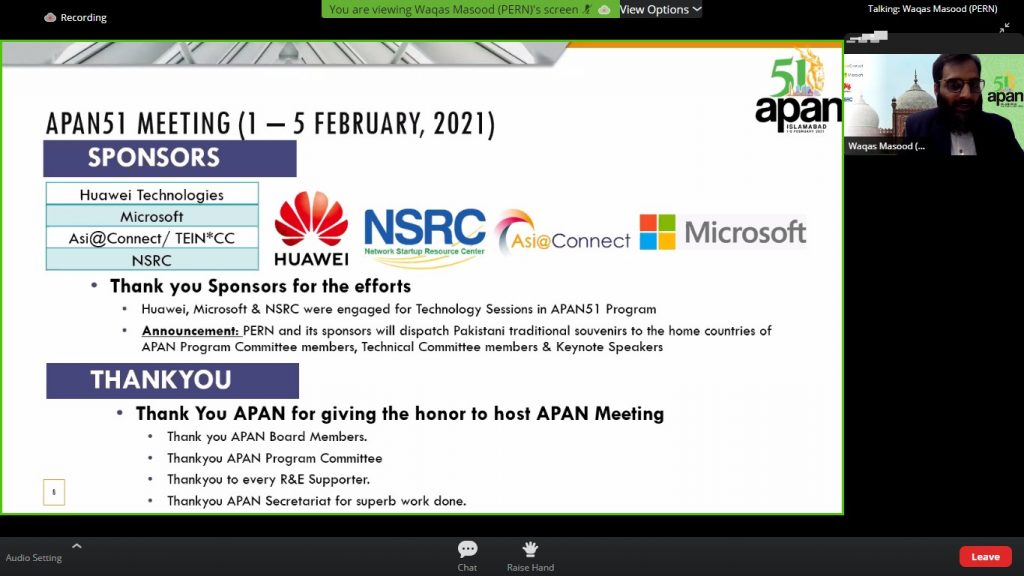

52nd APAN Conference (Virtual meeting), 3-6 August 2021, hosted by NREN in Yogyakarta, Indonesia

Due to the COVID-19 situation, the 52nd Asia Pacific Advanced Network Conference were held via video conference. Indonesia was the host country for this event, which took place from August 3-6, 2021. HII became a part of the Agriculture Working Group (AgWG) and Disaster Mitigation Working Group (DMWG) and participated in the conference under the following topics:
- Disaster Mitigation Working Group led by Dr. Eric Yen from Taiwan, presented the group’s mission, main objectives, activities, and status of cooperation. Additionally, they discussed various case studies of disasters. Two sessions were presented during the APAN meeting, including:
a. Session I
- Long-range pollutant transportation and air quality issues by Chuan-Yao Lin from Taiwan is a study that utilizes models to examine the movement of pollutants in the upper atmosphere.
- Status of DMWG and Regional Collaborations by Eric Yen from Taiwan is a presentation that provides an overview of the working group’s status, as well as plans for future operations.
b. Session II
- Plan for Understanding of Natural Disasters (UND) phrase II by Prof. JN Liew from Taiwan is a presentation of the UND project plan for Phase II. The UND project is a research initiative that explores weather patterns in various countries in order to share knowledge with members and learn together.
- The Summary of the Climate Resilient Agriculture for Disaster Risk Reduction (CRADR) Project is a joint effort between the AgWG and DMWG working groups. The project was completed in May 2021 and involved collaboration to promote climate resilience in agriculture and reduce the risk of disasters.



2. Open Data and Sharing Working Group led by Dr. Veerachai Tanpipat, consultant at Hydro-Informatics Institute (HII), discussed ways to address issues related to data sharing among researchers. The focus was on exchanging information regarding changes in weather conditions. During this event, several topics were presented by guest speakers, including:
- Open and Sharing Data Australia’s Experiences by Mr. Markus Buchhorn from Australia shared the country’s platform for open and shared data storage and management as an APAN executive.
- Open and Sharing Data of UNESCO by Mr. Bhanu Neupane from France shared UNESCO’s platform for open and shared data storage and management.
- the WAGRI Agricultural Data Collaboration Platform by Mr. Kei Tanaka from NARO in Japan shared the WAGRI Agricultural Data Collaboration Platform.
- Innovative BHOOMI Geoportal Platform in Sustainable Management of Land Resources- Indian experiences by Mr. G.P. Obi Reddy from India shared the innovative BHOOMI Geoportal Platform for sustainable land resource management.
- European and Asia Pacific Open Science by Dr. Eric Yen from Taiwan
- Global Open Data of Agriculture and Nutrients by Mr. André Laperriere from England
- Open and Sharing Data of CAMS-ECMWF by Mr. Mark Parrington from England
- Open and Sharing Data of JAXA by Mr. Shinichi Sobue from Japan
- SEA-HAZEMON Open Data by Dr. Adisorn Lertsinsrubtavee from ThaiREN shared SEA-HAZEMON Open Data.
- Hydro-informatics In Thailand by Dr. Sutat Weesakul, Director of HII presented the National Hydroinformatics Data Center or “NHC”, a central repository for water resource data collection in Thailand, for the country’s water management.





- Climate Resilient Agriculture for Disaster Risk Reduction (CRADR) project, which received funding from the European Commission, is a collaboration between the Disaster Mitigation Working Group (DMWG) and the Agriculture Working Group (AgWG). The project aims to study the impact of climate change on agriculture in Phrae province, the northern part of Thailand, and to apply new technologies from various countries, including Japan, Taiwan, and India, to address these challenges and develop smart agriculture solutions. The project also aims to share and expand its findings to ASEAN members. Several events have been organized as part of CRADR, including workshops and training sessions, to promote knowledge sharing and capacity building in the field of climate resilient agriculture as the follows:
Online Training, organized by Hydro-Informatics Institute (HII) on February 2, 2021, the training aimed to review information on water-related data for Phrae Province Water Resources Management Center and other agencies involved in water management. The goal was to prepare them for learning new technologies from other countries.
Workshop 1, led by HII from February 22-24, 2021, aimed to educate ASEAN countries on HII’s technology for analyzing weather conditions in Phrae Province, the northern part of Thailand.
Workshop 2, led by the National Agriculture and Food Research Organization (NARO) from Japan on 15-16 March 2021, aimed to teach the Smart Farm technology that can withstand changing weather conditions for agriculture.
Workshop 3, led by Taiwan on 6-7 May 2021, aimed to educate on high-performance computer technology from Academia Sinica Grid Computing Center (ASGC), Taiwan used for weather data analysis.
A total of 190 participants from 12 countries, including Cambodia, India, Indonesia, Japan, Laos, Malaysia, the Philippines, Singapore, Taiwan, Thailand, and Vietnam, attended the workshops.
Project outcomes:
– Outcome 1: Training program for Phrae Province Water Resources Management Center to learn how to access and utilize information, including managing real-time district information.
– Outcome 2: Deep analysis of weather conditions using meteorological parameters affecting agricultural production, categorized into four aspects: rainfall analysis, extreme climate, agriculture effects, and water balance analysis of the Huay Pom Reservoir.
– Outcome 3: Assessment of the science, technology, and agricultural innovation readiness of Phrae province at both provincial and community levels as:
Provincial Level = Phrae Province Water Resources Management Center is developing towards phase 2, which involves developing water reservoir data and storage systems for water balance analysis. This data will be used to evaluate areas at risk of drought and to identify the needs of communities and develop information systems for local water resources.
Community Level = Happy Farm = focused on analyzing the impact of changing weather conditions on vegetable crops in their farm. This analysis included temperature increases above 30 degrees celsius leading to crop diseases and slow growth, resulting in decreased vegetable value, as well as windstorms damaging greenhouse structures.
The outcomes have resulted in a framework for future development for all three levels of the project’s objectives, including community, provincial, and project stakeholders such as HII and international working groups.
Future plans: include implementing Phase 2 of the project, expanding collaboration with more stakeholders, and increasing participation from ASEAN countries.






Regarding the progress of the organization of the 53rd Asia Pacific Advanced Network Conference, it is scheduled to take place from March 7-11, 2022, hosted by NREN Bangladesh, and it is expected to remain in a virtual meeting due to the COVID-19 limitation.
53rd APAN Conference (Virtual meeting), 7-11 March, 2022 ,hosted by NREN Bangladesh
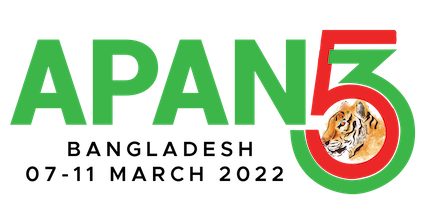
Due to the COVID-19 outbreak, the 53rd APAN Conference will continue to be held via video conference. This time, it will be hosted by Bangladesh from March 7-11, 2022. This event is a part of the Agriculture Working Group (AgWG) and Disaster Mitigation Working Group (DMWG), in which Hydro-Informatics Institute (HII) participated. The conference will cover the following topics:
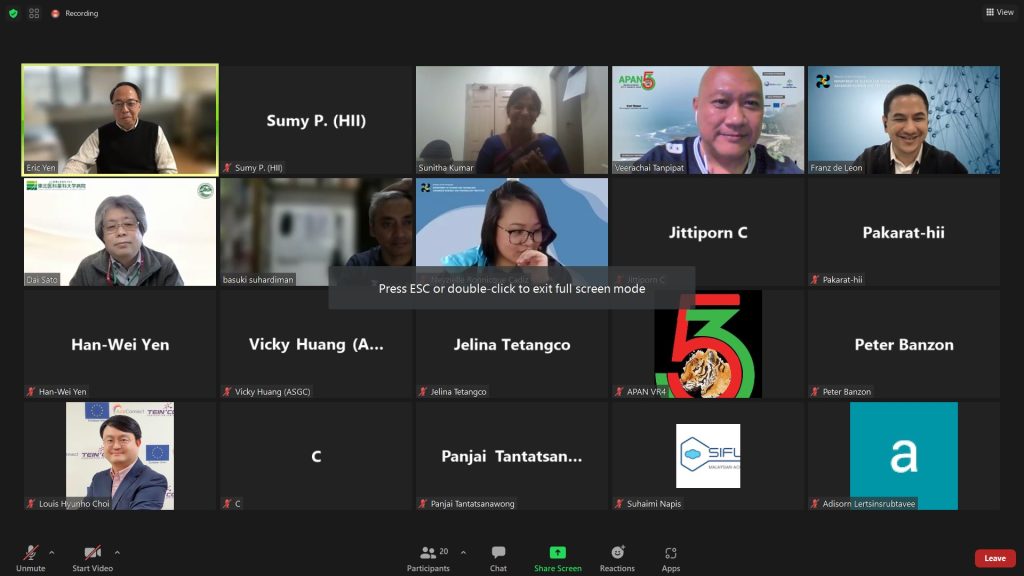
- Disaster Mitigation Working Group led by Dr. Eric Yen from Taiwan, presented the group’s mission, main objectives, activities, and status of cooperation. Additionally, they discussed various case studies of disasters. Two sessions were presented during the APAN meeting, including:
Session I
- The status of the DMWG and regional collaborations by Eric Yen from Taiwan is a presentation on the status and plans of the working group.
- Storm surge and tsunami by Yu-Lin Tsai and Chuan-Yao Lin from National Central University, Taiwan is a use of models to examine coastal waves and tsunamis.
- Floods by Prof. Ju Neng Liew from Universiti Kebangsaan Malaysia is a presentation on floods.
- Talks by Prof. Ken Murata from the National Institute of Information and Communications (NICT) in Japan is a discussion of future collaborations.
Session II
- Forest Fire/Haze/Maze and hydroinformatics by Dr. Veerachai Tanpipat, consultant of HII, Thailand, presented the analysis of forest fire situations in Thailand using various models.
- ASEAN Collaborations by ASEAN Collaborations by Dr. Veerachai Tanpipat, consultant of HII, Thailand, reported the progress of various activities that HII has done in collaboration with ASEAN countries.
- Disaster Mitigation-related initiatives of ASTI by Neyzielle Ronnie R. Cadiz, ASTI Philippines, discussed the disaster mitigation-related initiatives of ASTI.
- Impact of quasi-stationary waves on Indian summer monsoon drought conditions by Prof. Suneetha Kumar, Andhra University, India.
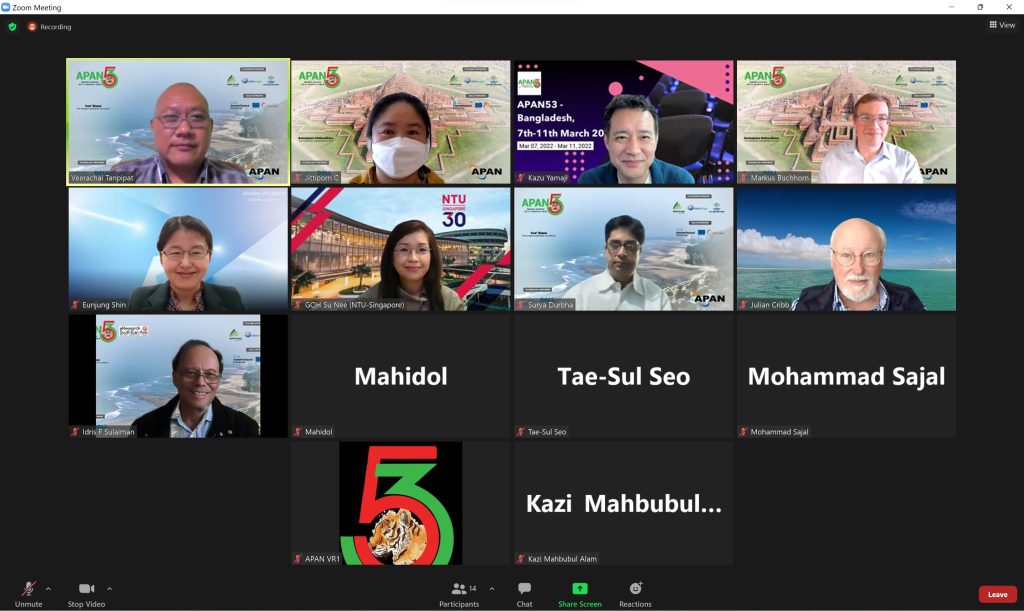
2. Open Data and Sharing Working Group led by Dr. Veerachai Tanpipat, consultant of HII, Thailand, discussed solutions to the challenges of sharing data among researchers, with a particular focus on exchanging information related to climate change. Various topics were presented during the meeting, including:
- Ms. Eunjung Shin, Head of the Office of Institutional Innovation Research at the Science and Technology Policy Institute (STEPI) in South Korea presented “Plan and Actions to implement the UNESCO Open Science Recommendation”, as well as the activities of the Asia Pacific Network (STEPAN) which was established to promote dialogue and activities related to Open Science.
- Prof. Dr. Surya Durbha from IITB in India shared the country’s “Open Science policy and specifically discussed open standards for geospatial data interoperability and knowledge discovery“.
- What we should do toward open and sharing data by Mr. Kazu Yamaji from the National Institute of Informatics (NII) in Japan presented the important role of NREN in providing the infrastructure for Open Science and data sharing.
- UNESCO Open Science by Mr. Bhanu Neupane from UNESCO in France presented UNESCO’s recommendations and proposals for Open Science.
- Accelerating the paradigm shift towards Open Science and Data Sharing in Pandemic times and beyond by Prof. Idris F Sulaiman from the eResearch Network for South East discussed the eRSEA’s work on Open Science during the COVID-19 pandemic and beyond, with a focus on accelerating the paradigm shift towards data sharing.
- Mr. Markus Buchhorn from Australia discussed future activities of the Asia-Pacific Open Data Commons working group, including assigning responsibilities for each task.
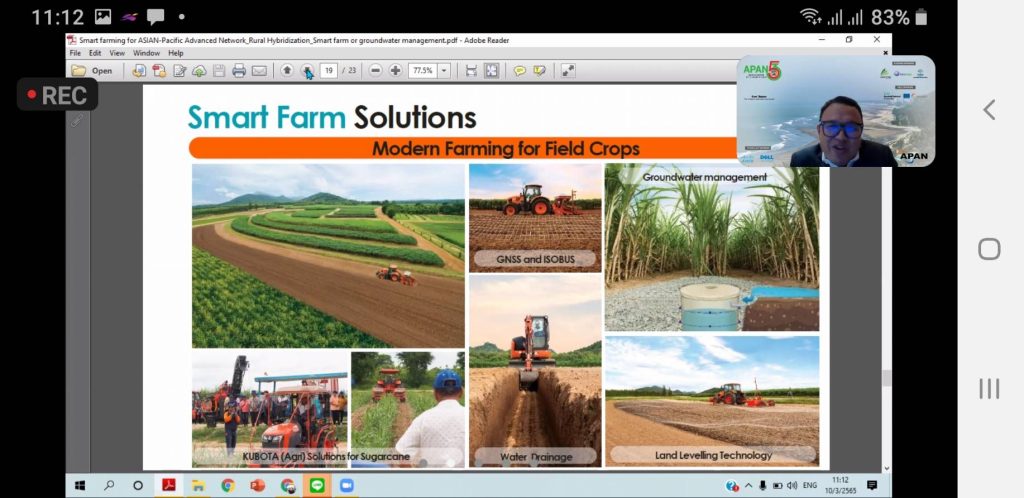
3. Agriculture Working Group, led by Hydro-Informatics Institute (HII), Thailand, has gathered experts from around the world to present various initiatives, policies, ideas, and technologies related to agriculture. These include technologies for disease surveillance in plants, as well as applications that facilitate convenience for farmers. The working group has divided its presentations into two main sessions.
Session I: Rural Hybridization focuses on various agricultural technologies. In thissession, HII has the privilege of inviting experts from both domestic and international fields to share their knowledge and expertise. There will be five topics covered in this session as:
- Chemically Modified Starches: Procurement, Characterization and Applications in Food Industry by Anjali Singh, from the PDPM Indian Institute of Information Technology, Design and Manufacturing, Jabalpur, India, presented about the food industry and the development of polymers from starch in India.
- Collaborative Research on Crop Monitoring and Disease Control in the Context of Sustainable Development Goal of Zero Hunger by Aparajita Ojha, from the National Institute of Technology, Jalandhar, India, presented the use of AI and IoT that may be useful in monitoring crops and increasing agricultural yields.
- Advanced ICT projects and collaboration in a rural area, Sarabetsu village, Japan by Prof. Masayuki Hirafuji, from the University of Tokyo, Japan, presented the concept of DATA-FARM, which is an IoT-designed farm for growing/harvesting large amounts of plant data.
- Techniques for the digital clone of crops by Prof. Wei Guo, from the Graduate School of Agricultural and Life Sciences, University of Tokyo, Japan.
- Smart farm or groundwater management by Mr. Amnart Butrthongkamwong, from Siam Kubota Corporation Limited, presented about agricultural technology developed by Siam Kubota Company in Thailand.
Session II: In this Agriculture Working Group, we had the privilege of hosting international speakers to share their knowledge on agriculture. There were a total of 6 topics presented as:
- Advances in microbiology for sustainable Agriculture by Amrutha Valli audipudi, Acharya Nagarjuna University, India
- For Oral Presentation – Diversity and phyto sociological study of weeds in Paddy crop fields of Kurnool district, A.P., India by Dr. Guddeti Meerabai, Rayalaseema University, India
- Agro-Photovolatics: Solution to Energy, Water, Food,Land and climate issues by Sudhakar Kumarasamy, Universiti Malaysia Pahang, Malaysia
- Crop Price Prediction – A Grand Challenge Problem by Prof. Yadati Narahari, Indian Institute of Science (IISc), India
- Values of wetlands for food and environmental security by Prof. Dr. Harunur Rashid, Department of Fisheries Management, Faculty of Fisheries, Bangladesh Agricultural University, Mymensingh, Bangladesh.
54th APAN Conference (Hybrid format), 22-26 August 2022, China.
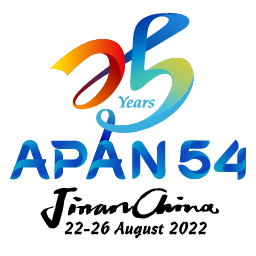
54th Asia Pacific Advanced Network Conference were held from August 22-26, 2022 in a hybrid format for the first time. The host of the event was China, and participants were invited to attend in person in Jinhua City, Zhejiang Province, China only, while those from other countries joined via video conference. Hydro-Informatics Institute (HII), as apart of Agriculture Working Group (AgWG) and Disaster Mitigation Working Group (DMWG) which provided an opportunity for participants to share their knowledge and experiences, and to discuss strategies for addressing challenges related to agriculture and disaster mitigation in the Asia Pacific region as following topics:
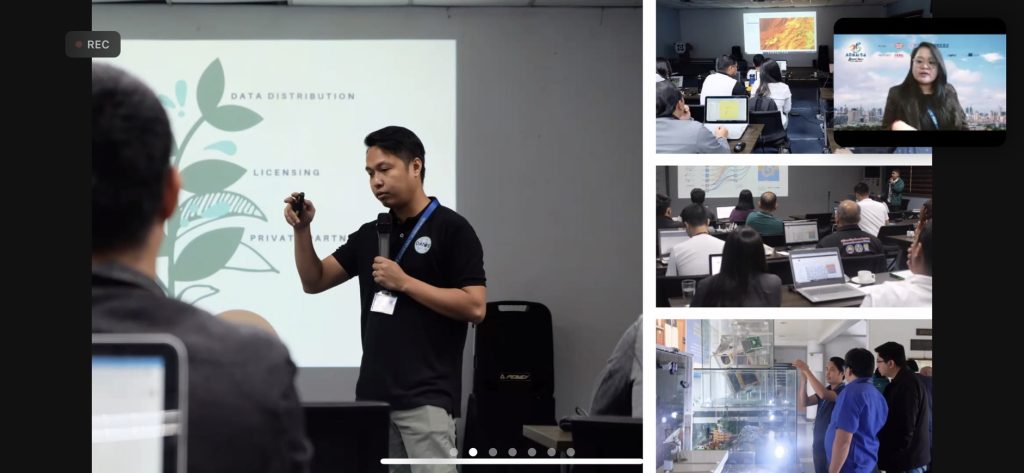
- Disaster Mitigation Working Group led by Dr. Eric Yen from Taiwan, presented the mission and main objectives of the working group, as well as its activities, cooperation status, and case studies on various disasters topics as:
- Status of DMWG and Regional Collaborations presented by Eric Yen from Taiwan, discussed the current status of the working group and introduced the new chair, Franz Leon, as well as the various plans of the working group.
- Effects of biomass burning transport from Indochina during EMeRGe-Asia identified by WRF-Chem was presented by Prof. Chuan-Yao Lin from Taiwan.
- ASTI’s S&T Infrastructures for DRRM was presented by Neyzielle Ronnicque Cadiz from ASTI in Indonesia, showcasing the science and technology infrastructures developed for disaster risk reduction and management.
- SEA-HAZEMON: Active Forest Fire and Haze Monitoring was presented by Adisorn Lertsinsrubtavee from the AIT Institute, Thailand, presenting an active forest fire and haze monitoring system in Southeast Asia.
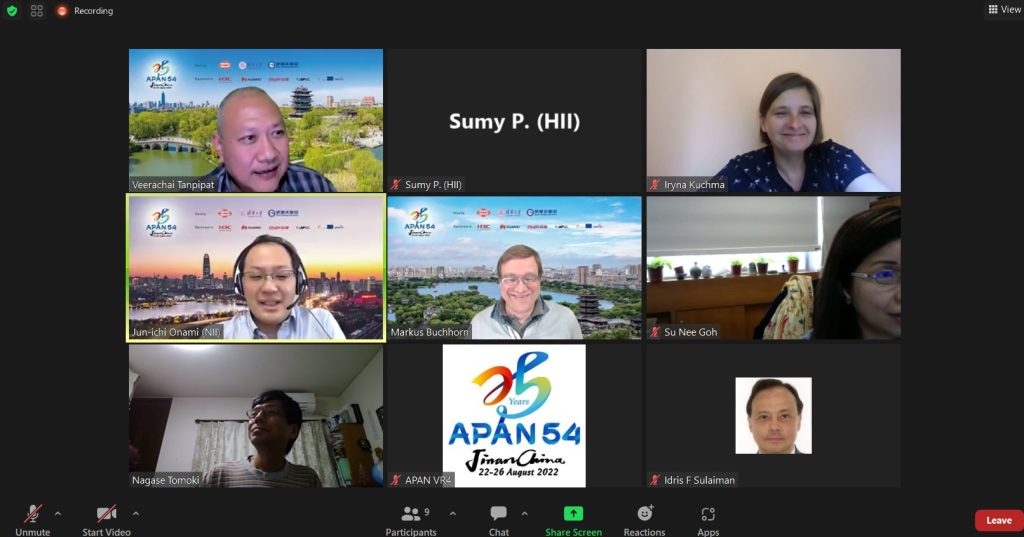
2. Open Data and Sharing Working Group, led by Dr. Veerachai Tanpipat, a consultant to Hydro-Informatics Institute (HII), organized a conference under the theme “Towards an Asia-Pacific Open Data Commons.” The conference aimed to address issues related to data sharing among researchers, with a particular emphasis on exchanging information related to climate change. Various speakers presented different topics as:
- UNESCO Open Science Update presented by Iryna Kuchma from EIFL in Lithuania, providing a progress report on various activities of UNESCO in the area of Open Science.
- Introduction to APAN Data Web Portal (data.apan.net) by Jun-ichi Onami and Kazu Yamaji from NII in Japan, introduced a web portal for sharing various data of the APAN network.
- Australian Open Science: Medical Data Sharing by Markus Buchhorn from Australia, presented data sharing in the field of medical research in Australia.




3. Agriculture Working Group & Rural Hybridization discussed the various activities of the agriculture working group, including policies, ideas, and technologies related to agriculture. It also highlighted applications that provide convenience for farmers. Key topics included:
- Agricultural Training via Visual IoT Technology by Dr. Tsutomu Nagatsuma from the National Institute of Information and Communications Technology (NICT) in Japan. This presentation discussed the development of a long-distance agricultural training system using high-quality video as a teaching medium.
- Tracking of tapetum using visual IoT techniques by Dr. Kazutaka Kikuta from the National Institute of Information and Communications Technology (NICT) in Japan. This presentation discussed the development of a high-quality video and image-based detection and tracking system for raising cattle, particularly at night.
- Development of an open-source AR platform for visualizing digital twin of agriculture plant in breeding experiment by Mr. Heming Zhang, a student from the University of Tokyo in Japan. This presentation showcased a 3D model designed to observe changes in plant growth and predict plant response.
- Procedural Geometric Modeling for Plant Phenomics by Blender: Case Study of Maize by Mr. Haozhou Wang, a student from the University of Tokyo in Japan. This presentation discussed a 3D model of corn to study the creation of a model using various parameters.
- Data farmbot, a full automatic system for agri-big data collection by Mr. Tang Li, a student from the University of Tokyo in Japan. This presentation discussed the detailed collection of agricultural data using the Data farmbot system.
- Automatic phenotyping analysis of paddy rice panicle and the panicle developments under nitrogen fertilization treatments during the heading and flowering stages by Mr. Qinyang Zhou, a student from Nanjing Agriculture University in China. This presentation showcased the monitoring of rice plant development during the heading and flowering stages and improving crop efficiency and breeding.
- Heat and moisture loss from leaves and soils by Prof. Jaywant Arakeri from the Indian Institute of Science in Bengaluru, India. This presentation showcased the results of laboratory experiments on heat and moisture loss from surfaces similar to soil and plant leaves.
- Sensors and Sensing for Precision Agriculture by Dr. Rabi Narayan Sahoo from the Indian Agricultural Research Institute in India. This presentation discussed various sensors and sensing techniques used in precision agriculture.
- Connected Agriculture: IoT & Big are Transforming Agriculture by Prof. Abdul Razzaq from MNS University of Agriculture, Multan, Pakistan, presented about smart technologies for agriculture to address the problems of climate change affecting crop production.
- Carbon Stock Estimates in Some Crop Fields of Kurnool District, A.P., India by Prof. Guddeti Meerabai from Rayalaseema University, India, presented about carbon sequestration in agriculture systems and data on carbon levels in soil in crop fields in Kurnool district, India.
- Policy on Smart Agriculture in Japan by Dr. Seishi Ninomiya from the University of Tokyo, Japan, presented about Japan’s smart agriculture policy.
Regarding the progress of the Asia Pacific Advanced Network Meetings, the 55th session is scheduled to take place on March 13-17, 2023, hosted by NREN Nepal.
55th APAN Conference, 13-17 March 2023, Kathmandu, Nepal.
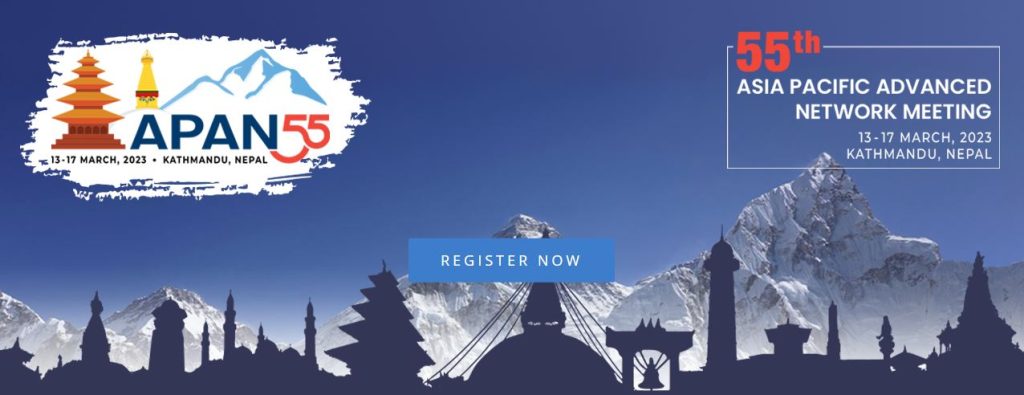
The 55th Asia Pacific Advanced Network Conference took place from 13-17 March 2023 in a hybrid format, with Nepal as the host country. Dr. Veerachai Tanpipat, a consultant to Hydro-Informatics Institute (HII), attended the event as a representative. HII was a part of the Agriculture Working Group (AgWG) and the Disaster Mitigation Working Group (DMWG), and participated in meetings on various topics during the conference as:
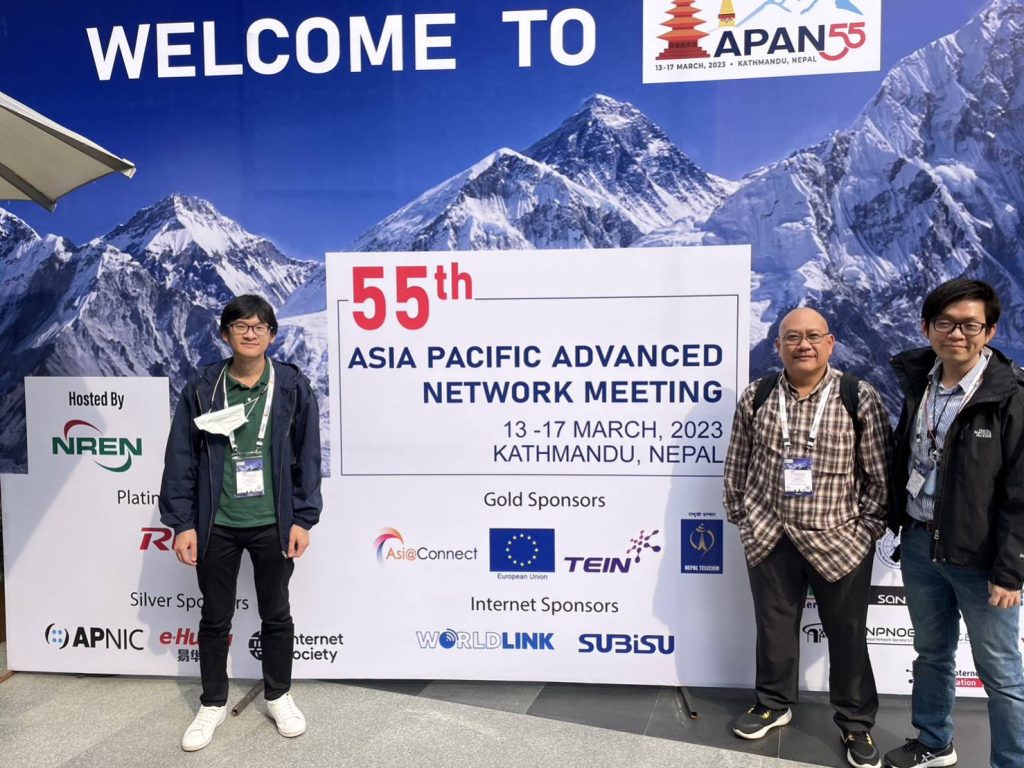
- Disaster Mitigation Working Group, led by Eric Yen from Academia Sinica Grid Computing Centre, Taiwan, presented the mission and main objectives of the working group, as well as their activities and various collaboration statuses, including case studies of different disasters. This presentation was given during the APAN Meeting, which covered a wide range of topics related to disaster mitigation as follows:
- Introduction, Status of DMWG and Regional Collaborations by Eric Yen, Franz Leon, Dr. Veerachai Tanpipat presented the mission and main objectives of the working group, as well as their activities and various collaboration statuses.
- Numerical Investigation for Distant Tsunami Wave Propagation from Offshore to Nearshore by Dr. Yu-Lin Tsai
- Spatiotemporal drought analysis and multi-stakeholder viewpoints on climate change and agriculture adaptation in Bangladesh coastal area by Mr. Md Abdulah Al Mamun
- Upper ASEAN Wildland Fire Special Research Unit (WFSRU) and HII Activities Updates by Dr. Veerachai Tanpipat, a consultant to Hydro-Informatics Institute (HII).
- VIIRS Night data analysis on Indonesia’s case along 2018-2019 by Mr. Basuki Suhardiman.
- Utilizing Space Technologies for Disaster Management by Dr. Shiro Kawakita, JAXA, Japan
- Reproducible Open Science with EGI Notebooks and Replay services, 25 min by Enol Fernandez.
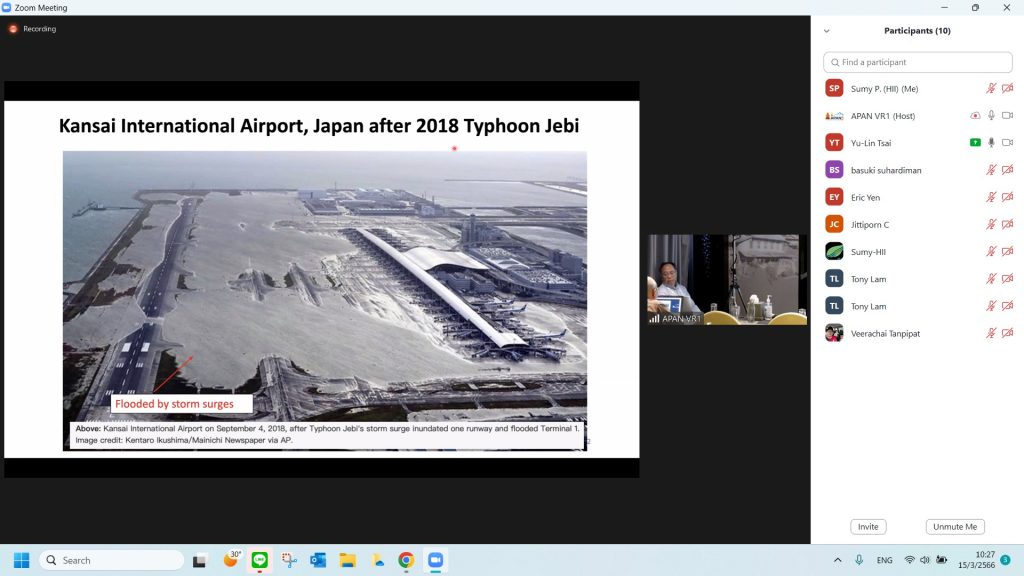
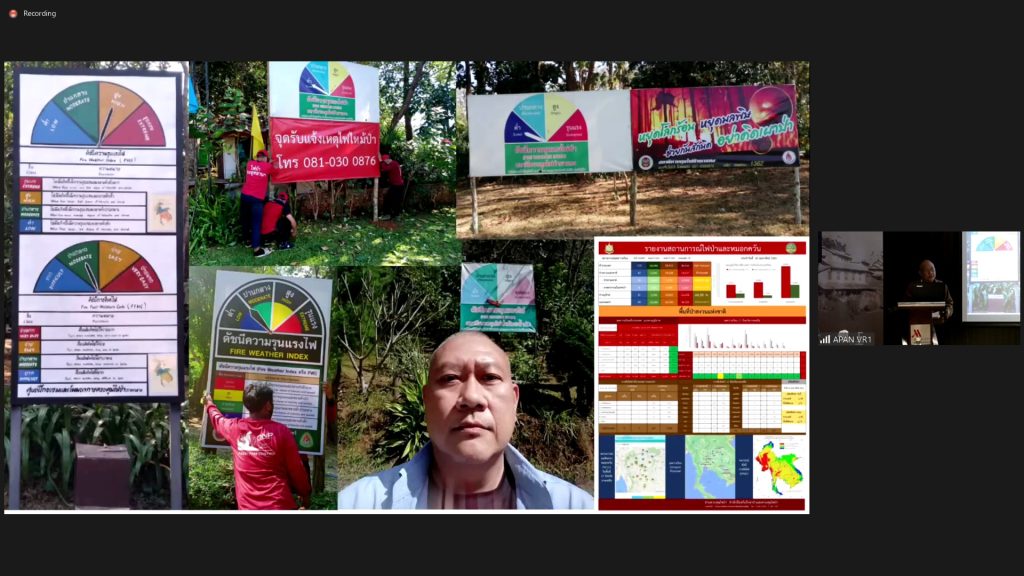
- Open Data and Sharing Working Group, led by Dr. Veerachai Tanpipat, a consultant to Hydro-Informatics Institute (HII), aimed to discuss the development of an international research community focused on open data and information sharing. The group sought to encourage the community to develop policies and frameworks for data sharing, support the development of skills, and create services to access suitable infrastructure. In this meeting, various speakers presented topics related to the group’s objectives, including the development of policies for data sharing, the importance of metadata, and the challenges and opportunities of sharing data in different topics as follows:
- The updates of the APAN Data site and NII RDC by Jun-ichi Onami, Tomoki Nagase, and Kazu Yamaji, National Institute of Informatics (NII, Japan.
- Research Software Engineering (RSE) Asia Association: Journey and Future Plans by Saranjeet Kaur Bhogal, Research Software Engineering (RSE) Asia Association.
- Initiatives for open data creation and sharing at the Ahmedabad University by Mehul Raval, Ahmedabad University, India.
- The updates of UNESCO Open Science by Ai Sugiura, UNESCO-Beijing Office.
- How to use good practices of Australian Open Science within APAN by Markus Buchhorn, APAN, Australia.
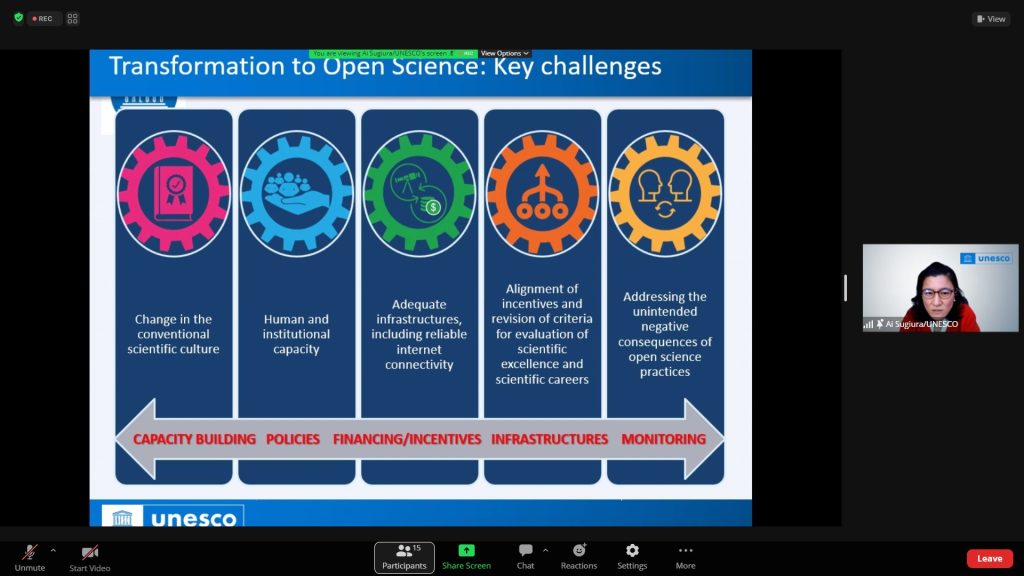

- Agriculture Working Group & Rural Hybridization session focused on agricultural work and the application of technology and research data for agriculture, with an emphasis on stakeholders. This included the use of Internet of Things (IoT) technology/networks and web services in the Himalayan region and beyond, shared through the APAN network. The goal is to expand development, innovation, and collaborative activities among agriculture working groups and to connect these ideas and technologies with new partnerships in the future. Key topics include the use of technology and research data for agriculture, the application of IoT and web services in the agricultural industry, and expanding partnerships and collaborations for future developments as the following details:
- Ag Web service in Taiwan by Chen Yan-you from Taiwan Council of Agriculture presented a data management system for analyzing plant growth to research the control of plant diseases and insects in Taiwan.
- Networking in Himalaya presented by Mr. Pavan Shakya from NREN Nepal aims to develop internet connectivity in remote areas, especially in high altitude regions, as a starting point to collect data and develop agriculture in the area, for example, Seabuckthrone farms in Dingboche, which is a beneficial fruit with high vitamin C content grown in high altitude and cold areas.
- IoT for Himalayan region presented by Mr. Masayuki Hirafuji from the University of Tokyo, Japan introduces field technology to collect data for various disaster warning purposes, such as Solar Cubicle, a solar-powered camera that can receive sunlight from all directions, among other technologies.
- Digital Earth for the Himalayan Region presented by Hiromichi Fukui from Chubu University, Japan, uses technology to analyze the earth’s surface and crust, including the mountain range, as well as a wireless Early Warning System installed along the mountain range to warn of potential mountain disasters. The presentation also includes case studies from different locations.
- Major Crops Mapping in Thailand presented by Dr. Noppadon Khiripet from the National Electronics and Computer Technology Center (NECTEC), Thailand, introduces AgriMap, a map of agriculture in Thailand, to analyze the suitability of each crop for each season.
- An AI enabled quasi-real-time water quality monitoring for early chemical and/or bio-contamination detection presented by Yasir Faheem from NUST School of Electrical Engineering and Computer Science, Pakistan, focuses on monitoring water quality in real-time using AI to detect early chemical and/or bio-contamination.
- A hybrid approach (Image Processing and Ontology Engineering) for detecting Crop Disorder in Agriculture presented by Shyama Wilson from Uva Wellassa University, Sri Lanka, uses image processing and ontology engineering to detect crop disorders in agriculture.
- ICT in genetic improvement in Livestock presented by Dr. Neena Amatya Gorkhali from the National Animal Breeding and Genetics Research Centre, Nepal Agricultural Research Council, Nepal, focuses on the use of technology in animal breeding in Nepal.
- Activities of AFFRIT and MAFFIN Update by Shinji Hattori and Mitsuru Kameya from the Agriculture, Forestry and Fisheries Research Technology Center, MAFF, Japan have updated on the activities of AFFRIT and MAFFIN as part of the Green Asia project. This initiative aims to expand the use of agricultural technology to enhance the potential of food production systems for sustainable development in the Asian Monsoon region.
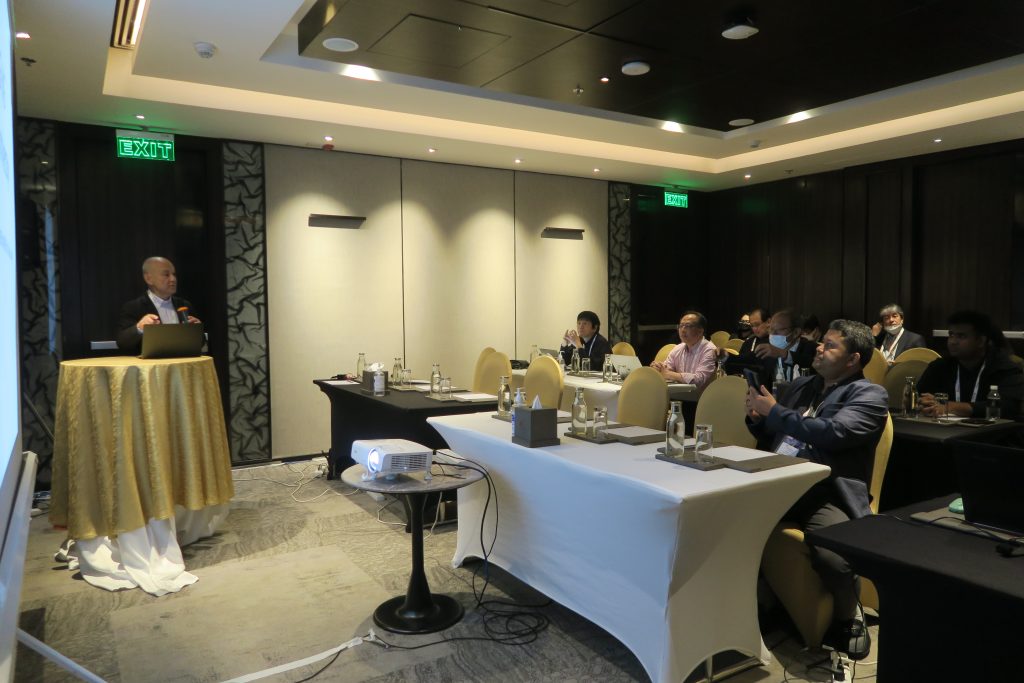
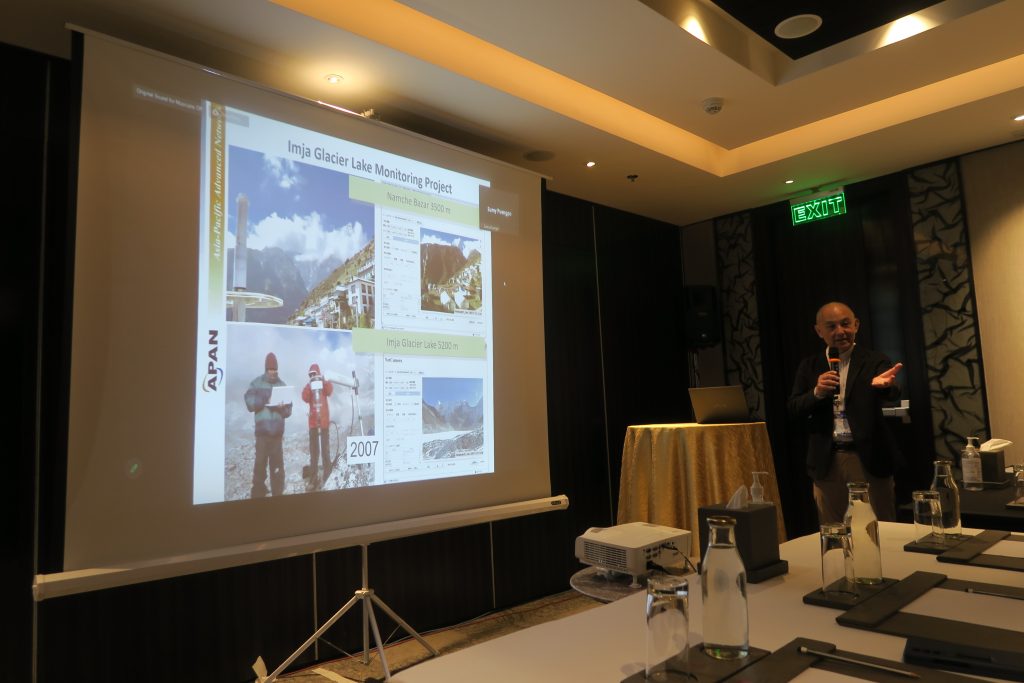
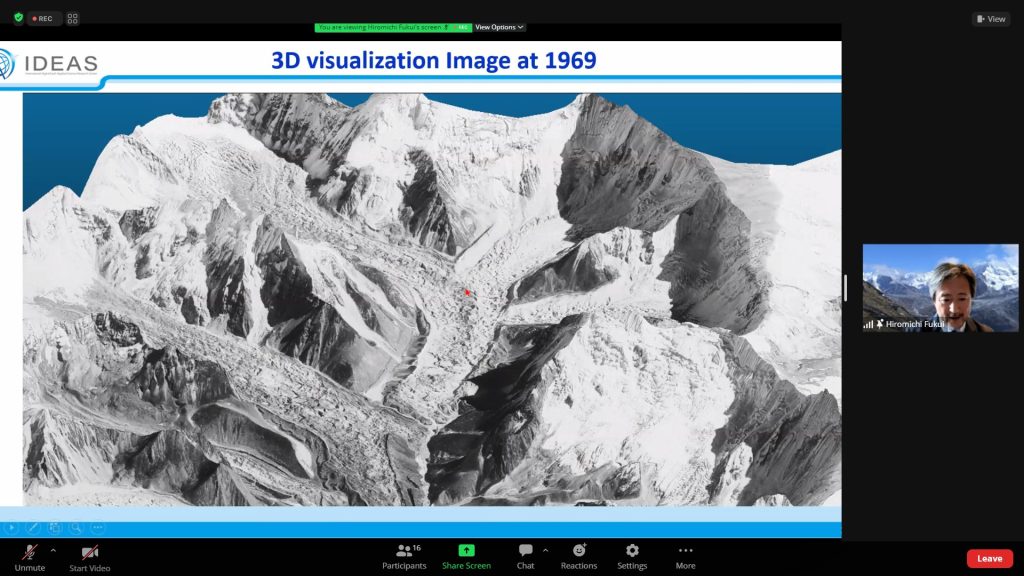
The 56th Asia Pacific Advanced Network Conference will take place from August 21-25, 2023 with Sri Lanka hosting the event. Updates on the progress of the conference are yet to be announced later on the official website.
56th APAN Conference, 21-25 August 2023, Galle Face Hotel, Colombo, Sri Lanka.
The 56th Asia Pacific Advanced Network Meetings (APAN 56) were held from August 21 to 25, 2023 at the Galle Face Hotel in Colombo, Sri Lanka. This conference was organized in a hybrid format and hosted by LEARN, the Sri Lankan research and education network. As part of the working groups, the Hydro – Informatics Institute (HII) participated in the event. There were three specific working groups at the conference:
1. Agriculture Working Group – AgWG
2. Disaster Mitigation Working Group – DMWG
3. Open and Sharing Data Working Group – OSDWG
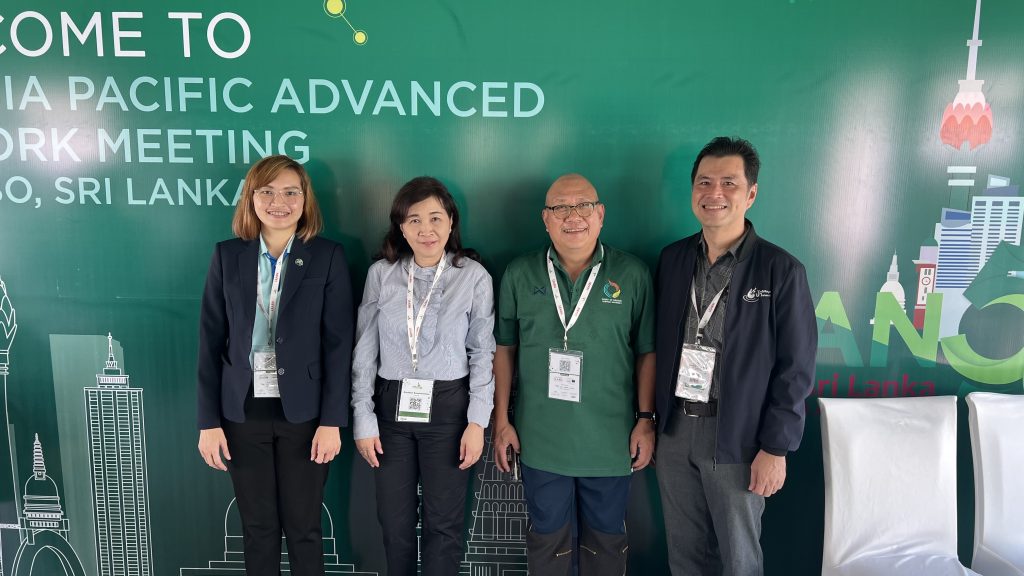
The representative from Hydro – Informatics Institute (HII) attended the conference and took part in meetings under the following topics:
- Disaster Mitigation Working Group, led by Eric Yen from the Academia Sinica Grid Computing Centre in Taiwan, presented the mission and main objectives of the working group during the APAN meeting. They discussed various collaborative efforts and presented case studies related to disaster mitigation as follwing topics:
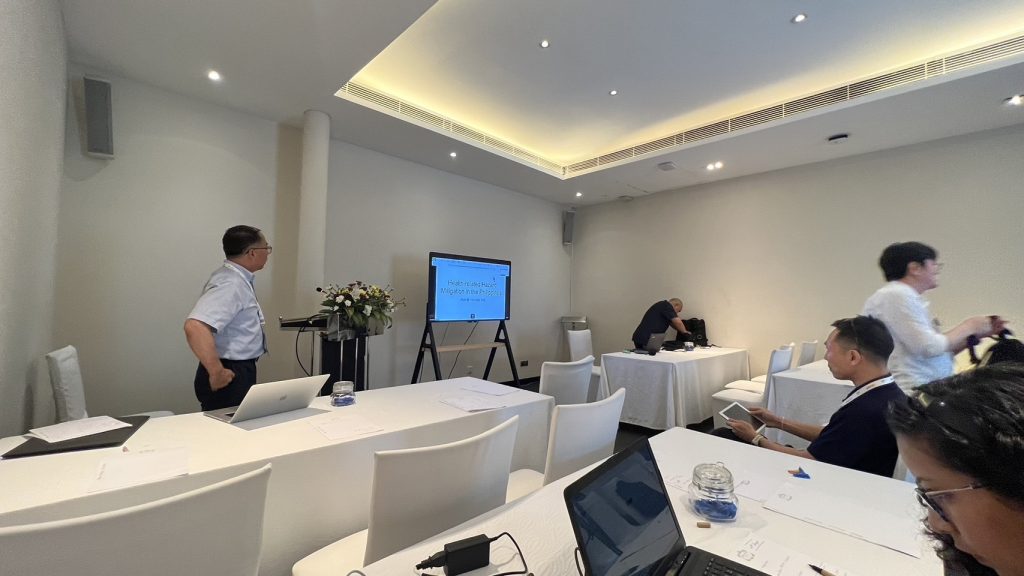
- Introduction, Status of DMWG and Regional Collaborations – Presented by Eric Yen, Franz Leon, and Dr. Veerachai Tanpipat, which outlined the current status and collaborative efforts within the DMWG.
- Health-related Hazard Mitigation in the Philippines – Presented by Alvin Marcelo from St. Luke’s Medical Center in the Philippines.
- Health-related hazard mitigation in Japan – Presented by Dai Sato from Tohoku Medical and Pharmaceutical University in Japan. This presentation likely discussed health-related hazard mitigation in the context of Japan.
- Fire/Haze/Smoke Monitoring – Presented by Dr. Veerachai Tanpipat, an advisor to the Hydro – Informatics Institute (HII). This presentation might have focused on monitoring and mitigating fire, haze, and smoke-related issues.
2. Open Data and Sharing Working Group, led by Dr. Veerachai Tanpipat, consultant to the Hydro – Informatics Institute (HII), aimed to facilitate the development of a community supporting international research with a focus on rapidly and efficiently opening and sharing data. This was achieved by engaging the community in the development of policies and frameworks for data sharing, supporting skills development, and creating services to access suitable infrastructure.
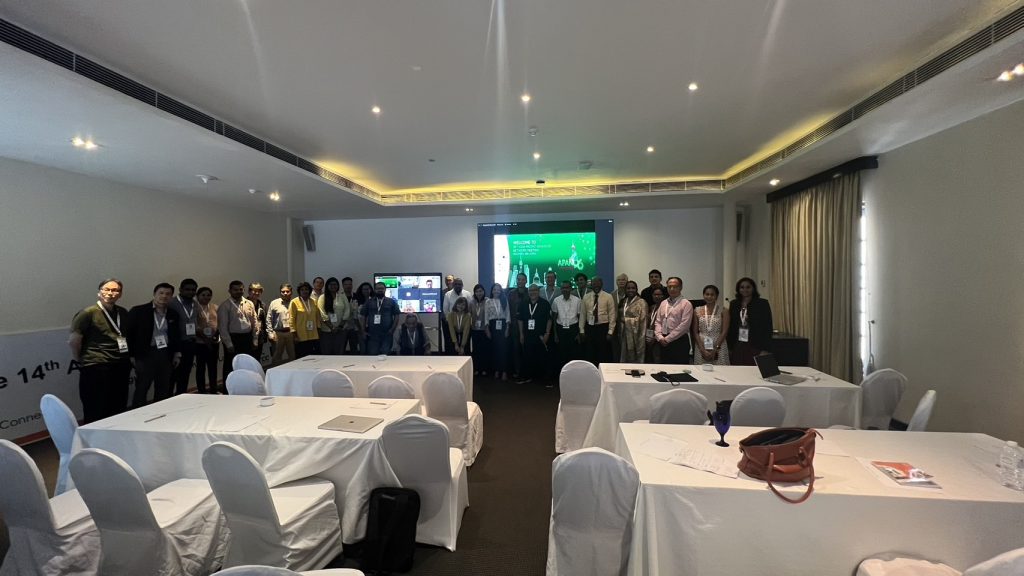
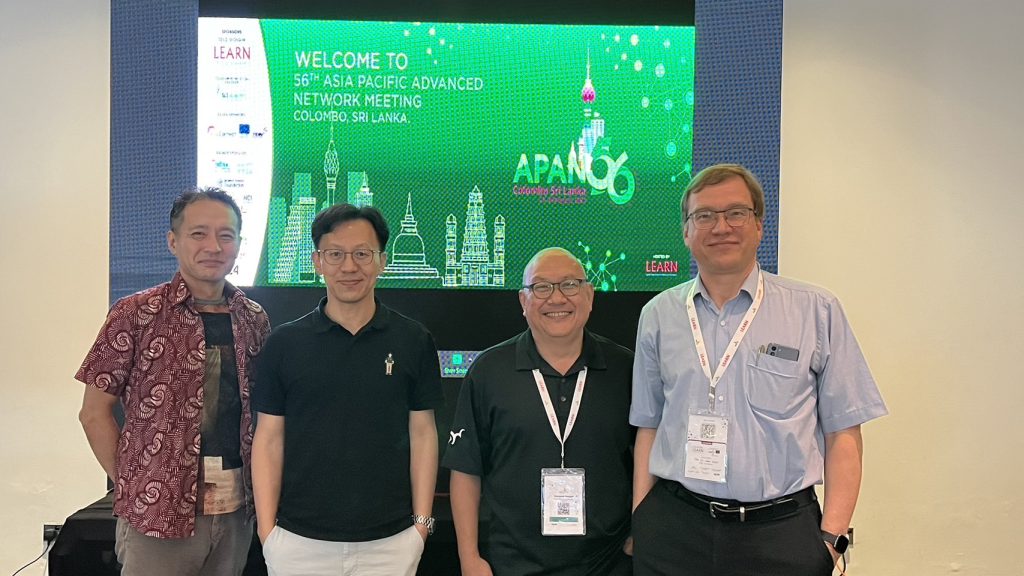
The speakers and topics are included as follows:
- Broader perspective and practical action on Open Science by Dr. Veerachai Tanpipat, consultant to the Hydro – Informatics Institute (HII)
- UNESCO Recommendation on Open Science, Regional implementation progress and future activities by Ai Sugiura, UNESCO, Beijing.
- TBC by Aini Suzana Ariffin, STEPAN, Malaysia
- โดย Iryna Kuchma, EIFL ประเทศลิทัวเนีย
- Data stewardship skills, training and curricula by Markus Buchhorn, APAN, Australia
3. Agriculture Working Group & Rural Hybridization which focuses on agricultural and technological research data to be applied in agriculture with a primary emphasis on rural areas. This includes technologies like the Internet of Things (IoT), which are shared through the APAN network. The main goal is to expand the development of innovations and collaborative activities within the Agriculture Working Group. These concepts and technologies aim to connect partnerships and foster new collaborations in the future.
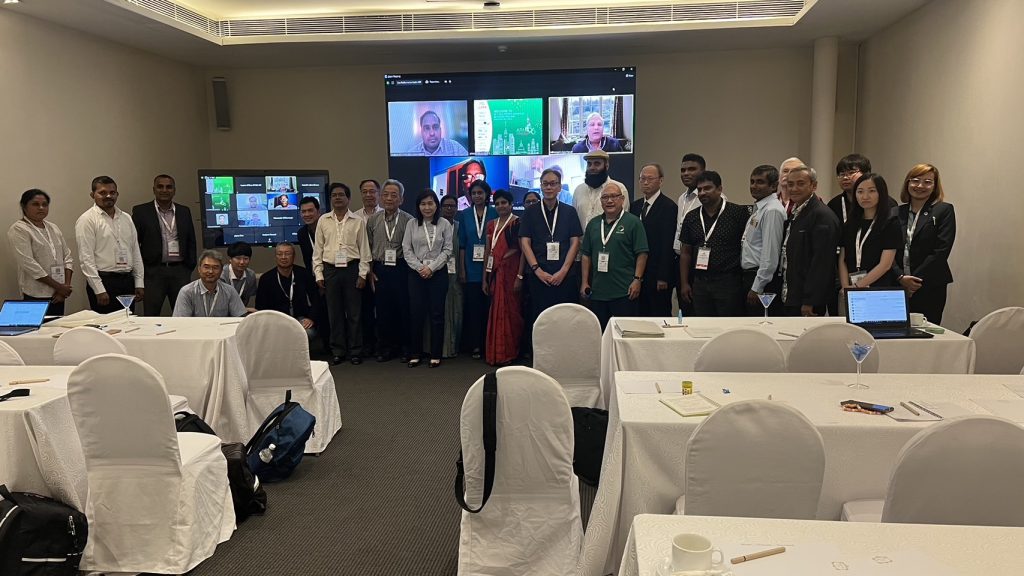
There main topics as follows:
- Agro-informatics activities in Sri Lanka by Dr. Dimuthu Piyaratne from the Faculty of Agriculture, University of Ruhuna, Sri Lanka.
- MAFF’s Activities to Promote Digital Transformation (DX) of agriculture in Japan by Mr. Mitsuru Kameya from the Agriculture, Forestry and Fisheries Research Technology Center, Ministry of Agriculture, Forestry, and Fisheries (MAFF), Japan.
- Leveraging the plant architecture analysis in rice (Oryza Sataiva L.) with image-derived morphological traits in phenomics by Mr. Mukesh K Vishal and Prof. Adinarayana J. from the Centre of Studies in Resources Engineering, IIT Bombay, India.
- Suspension Matter (TSM) Monitoring Using Data Cube: A Case Study for Zeng-Wen reservoir by Dr. Li-Yu Chang from the Taiwan Space Agency, Taiwan.
- L-SAR rice crop monitoring in Asia by Dr. Shin-ichi Sobue from the Japan Aerospace Exploration Agency (JAXA), Japan.
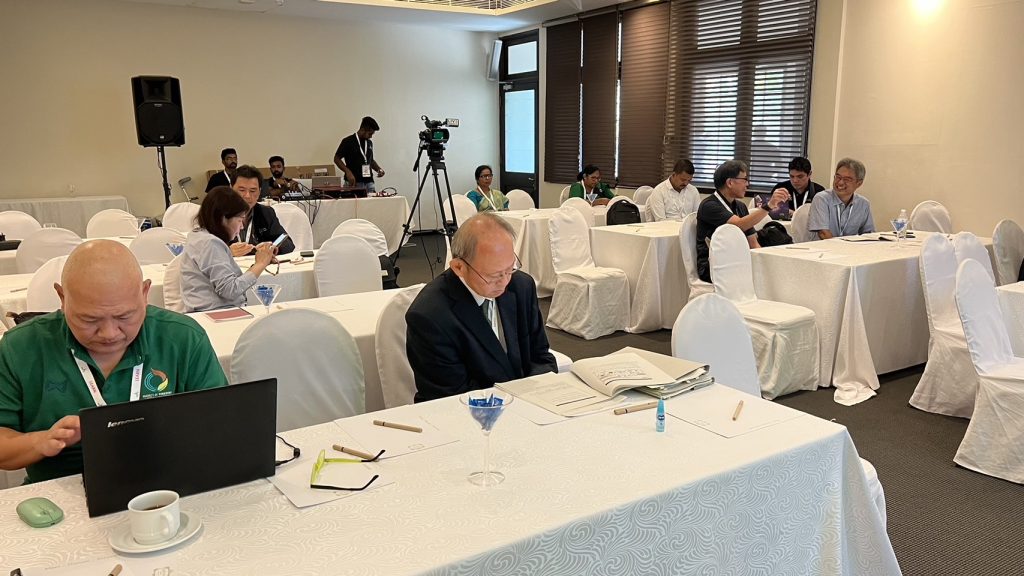
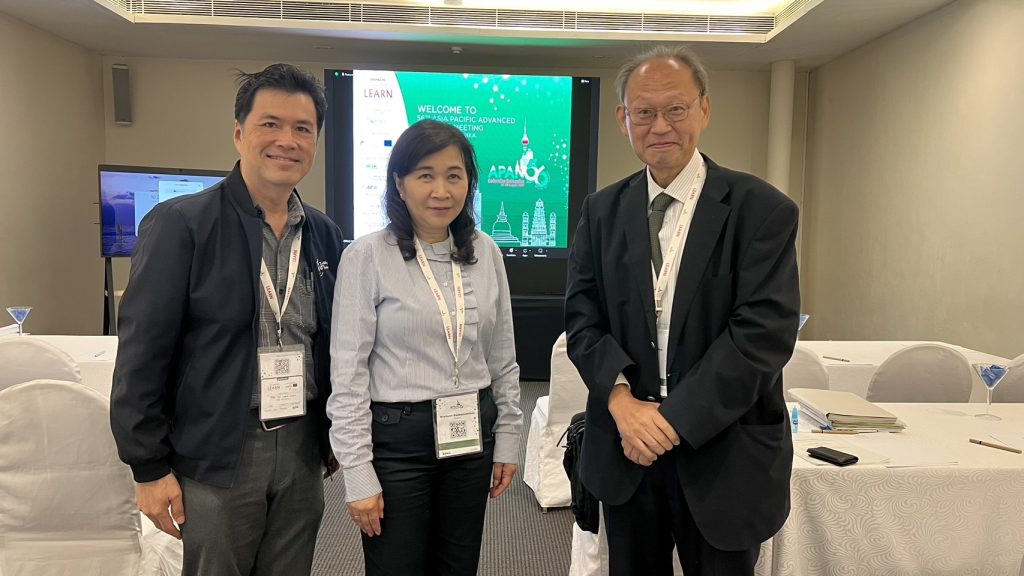
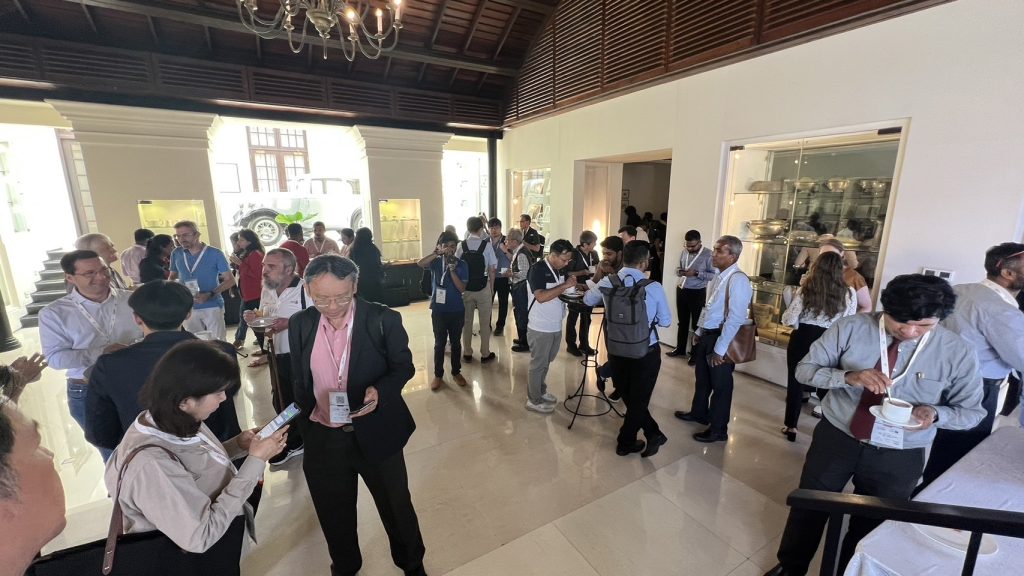
In terms of the progress of the organization of the 57th Asia Pacific Advanced Network Meetings, it is scheduled to take place from January 29 to February 2, 2024, with Thailand as the host country.
